Reliable, professional UK immigration law firm
Experienced immigration law firm that care about your future.Call on 020 7183 1734 for immediate help & assistance with your situation. D'Ascanio Law is here to help you in person, via the phone or online.
Request a call back from an immigration expert

Need an immigration lawyer? D'Ascanio Law can help!
D'Ascanio Law Firm is ready to work with you to remove the stress from any immigration process, maximising your chances of a successful outcome.If you are planning to visit, reside or extend your stay in the UK, D'Ascanio Law Firm is here to help you and your family with tailored immigration advice service.You will be assigned an immigration lawyer who perfectly matches your individual and professional needs. Your personal lawyer will work with you to assess your needs, goals and eligibility, and guide you through your application journey, supporting you every step of the way.Get in touch with D'Ascanio Law today to learn more about the services, and to take the first step towards your successful application.

D'Ascanio Law professional immigration advice sessions are available in person at our office, or via the phone.
How D'Ascanio Law can help with your immigration matters
D'Ascanio Law specialises in a wide range of UK visas, nationality and have represented clients in various successful cases.D'Ascanio Law can provide expert advice, practical assistance and professional representation to guide you through the application and decision-making process, from start to finish.D'Ascanio Law can help with any immigration service you are looking for. Speak to the customer client team to learn more about the packages and to receive the professional help you need to succeed.
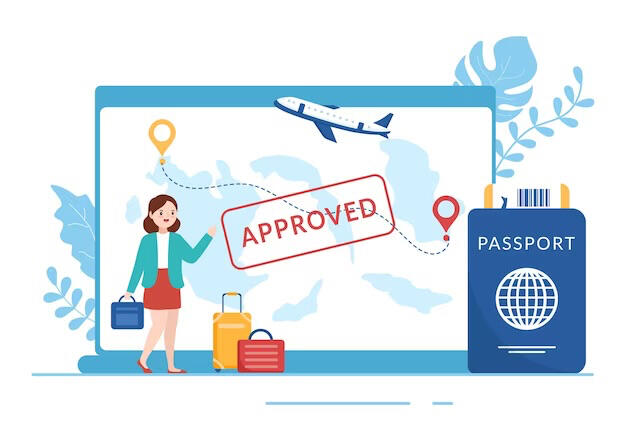
D'Ascanio Law can help you through each step of the immigration process.
Why Choose D'Ascanio Law?
Navigating the complexities of UK immigration law and visa applications can be a confusing process without the right help. Whatever the nature of your case, D'Ascanio Law is ready to take this stressful burden away from you and your family.
Why hire D'Ascanio Law as my lawyer?
D'Ascanio Law has an exemplary track record in Student, Family, Partner Visa cases and Skilled worker permits.D'Ascanio Law's bespoke services are available to those who plan to enter the UK, those who are already in the country and wish to extend their stay.D'Ascanio Law's highly qualified and regulated immigration lawyer has extensive knowledge of immigration legislation.D'Ascanio Law's lawyer undergoes regular accredited training to keep abreast of any changes, including Home Office policies, practices and procedures.
How can D'Ascanio Law help me and my family?
D'Ascanio Law offers professional assistance for several immigration processes, such as:· Entry clearance, Leave to Enter and Leave to Remain
· Applications under the Point-Based System
· Marriage and Family Visas
· Permanent residency and British citizenship applications
· Work permits and employment immigration services
Will my UK visa application be successful with D'Ascanio Law services?
If you proceed with an application with our lawyer, he will continue working with you, assisting you through each step of your application. He will help you check, gather and organise your supporting evidence, filing it into a successful application portfolio. This will make your application less likely to be delayed or rejected, by providing the Home Office with a comprehensive bundle of documents in support of your case.As a part of D'Ascanio Law's services, your lawyer will write a detailed Letter of Representation to support your application. This letter, which is built upon specific case-law, immigration legislation and Home Office guidelines, will address the Home Office directly and discuss the merits of your case.To avoid any inaccuracy which may jeopardise your case, your dedicated lawyer will also complete and submit all your application forms and documents on your behalf. The lawyer will then continue to liaise with the Home Office until a result has been reached. Once a decision has been made, your lawyer will inform you of it immediately.Although only the UKVI has the authority to decide on each visa application and we cannot guarantee that your case will be successful, we can promise you that you and your family will always receive the highest quality of care, support and legal guidance from D'Ascanio Law.D'Ascanio Law firm is the best in its field, as demonstrated continuously by its success rates and reviews.
What will my D'Ascanio Law immigration lawyers do?
D'Ascanio Law's services range from advice sessions — where the lawyer assess your eligibility and initial requirements — to full application and appeal support packages. D'Ascanio Law's packages are entirely unique to each individual, crafted around specific situations and needs.Your dedicated advisor will work closely with you to assess your immigration needs and outline an action plan to help you reach your goals. You will be provided with genuine and realistic information around your case, as well as detailed suggestions on the documents, evidence and application forms you will need for an application.D'Ascanio Law cares about every single one of its clients, and will do everything within its power to get the decision you deserve.D'Ascanio Law firm is ready to deal with your immigration requirements today.
D'Ascanio Law will handle every aspect of the application process on your behalf by submitting your application to the Home Office, ensuring a smooth and efficient experience.
What immigration services does D'Ascanio Law offer?
Whether you wish to immigrate to the UK to work, start your business, join your family or settle as a permanent citizen, D'Ascanio Law has all the necessary knowledge and competence to support you.
Partner and Family Visas
D'Ascanio Law is committed to helping its clients join their families in the UK. The lawyer will be happy to assist you and your beloved ones with any Family Visa application. These permits allow you to bring your children or partner to the UK, meaning that you won’t need to split up from your family, whether they are EEA citizens or live in any other country.D'Ascanio Law offers comprehensive and professional legal advice for the following circumstances:·Visa applications for adult dependents (such as parents or other relatives coming to the UK to be cared for by their family) and children dependents (under the age of 18) of British nationals or settled persons.
·UK Ancestry Visa applications for Commonwealth citizens, whose grandparents were British nationals.
·Visas for foreign partners. This includes the Spouse Visa, and applications for fiancé(e)s who intend to get married in the UK within six months. Same-sex couples can also be eligible for an Unmarried Partner visa.
Self Sponsorship Visas
The United Kingdom welcomes brilliant migrants who wish to invest in the UK or start their business.Our OISC-trained lawyers is experienced in employment immigration law, meaning that he can offer extensive and professional support to UK businesses who need to get a Sponsorship Licence. This is a fundamental requirement to employ international labour force and to hire foreign workers in your company.Speak to D'Ascanio Law today to learn more about the Sponsor Licence Application Package and services for international businesses and entrepreneurs. You can call and have a discussion with a member of our team at the office, or enquire online.
Skilled or Temporary Workers
International skilled workers can apply for a Skilled Worker visa, provided that they hold a valid job offer from a UK-based company. Based on their occupations, migrants can enter the UK on a Sportsperson Visa, or as Minister of Religion applicants. This application route is also open for those who are being transferred to a UK branch of their company under an Intra-Company Transfer Visa.D'Ascanio Law's services for international workers are also available to those who wish to spend a limited amount of time in the UK and are seeking temporary employment. For example, charity workers, creative talents and specific categories of applicants may be eligible for a temporary worker visa. Similarly, young migrants aged 18 to 30 from one of the countries listed in one of the UK’s International Agreements, can apply for the Youth Mobility Scheme.
International students and pupils
D'Ascanio Law understands the importance of gaining a first-rate education, and we are happy to guide international pupils who wish to study in the UK through each step of their Student Visa application.Moreover, D'Ascanio Law offers dedicated advice for applicants under the age of 18 who have received an admittance letter from an accredited British educational institution and, subsequently, need to submit a Child Student Visa application.As a part of the service, D'Ascanio Law will liaise with both your sponsor and the Home Office to ensure that your application is processed in time to allow you to attend your course of study. If your case is successful, and you wish to bring your family with you to the UK, we can also help with all the necessary documents required to support your dependents if allowed.
British Citizenship and Settlement
Deciding to settle in a foreign country is the most significant step of your immigration journey.For this reason, D'Ascanio Law offers complete support to those who wish to apply for Indefinite Leave to Remain.If you are currently living in the UK as a settled person and you wish to naturalise as a British citizen, D'Ascanio Law can assist you through each step of this process.D'Ascanio Law can help you obtain your British passport, whether you were born in the UK, have lived in this country as a lawful resident for several years, or are married to a British national.If you have been granted permission to stay in the UK for more than six months, D'Ascanio Law can also liaise with the Home Office to ensure that you receive your Biometric Residence Permit.
Visitor Visas and Emigration Services
International visitors may need a visa to visit the UK and to remain in the country for a short period.For example, those who wish to visit the UK for leisure purposes, receiving private medical treatment or attending unpaid business appointments can apply for a Standard Visitor visa. Alternatively, if you have been invited to the UK as a recognised expert of your profession, you may be eligible for a Permitted Paid Engagement Visa. Certain categories of travellers who need to pass through the UK on their way to another country may need to request a visitor in Transit visa.
D'Ascanio Law is here to help. You can call, email or message on WhatsApp.
D'Ascanio Law Fees
Consultations
Phone Consultation (10 mins) - £100
Video Consultation (20 mins) - £200
In-Person Consultation (30 mins) - £400Applications
Fiancée Visa - £2500
Spouse Visa - £2500
Extensions - £2500
Pre-settled status - £2500
Settled status / ILR - £2500
EUSS Family permit - £1500
Naturalisation - £2500
Visitor Visa - £1500
Student Visa - £2500
Sponsor Licence - £4000
Skilled worker visa - £2500
Skilled worker dependent - £2500
Self-sponsorship - £6000
E-visa - £1000
Subject access request - £1000
Fee waiver - £1500Extras
Additional applicants - £500 each
Application checking service - £1500
24H Priority Service - £500
Get in touch with D'Ascanio Law today to learn more about the professional services and to find out how D'Ascanio Law can help.
N
F
F
F
F
FFfF
F
F
F
N
F
F
F
F
FFfF
F
F
F
Spouse Visa UK - get legal assistance to join your Partner
The UK government recently announced a change to the minimum income requirements from £18,600 to £38,700. This comes into effect in April 2024 and affects three-quarters of Brits. Get in touch with us now for advice or support.The UK Spouse Visa, commonly known as a UK Marriage Visa, allows non-UK nationals to join their partner in the UK. Your spouse must be either a British citizen or a UK settled person.Call us on 020 7183 1734 for immediate help & assistance with your situation. We’re here to help you in person, via the phone or online.
Request a call back from our immigration experts
What is the Spouse Visa UK?
A Partner Visa UK, also known as a UK Spouse Visa, is a settlement visa that allows you to live together with your British partner in the UK for up to 30 months. It is one. of the visas under the Family visa category.It can be extended for another 30 months if you meet certain eligibility conditions. Holding a Partner Visa is the first step toward Indefinite Leave to Remain (ILR) and, eventually, British Citizenship.To apply for a UK Spouse Visa and enter the UK, you must be married to or in a civil partnership with a British citizen, UK settled person or UK refugee. The main eligibility criteria include providing proof that you are in a genuine relationship and that you meet specific financial conditions.Get in touch with our immigration lawyers to receive professional advice on your UK Partner Visa case and learn how you can enter the UK and get leave to remain with your partner if he or she is a UK citizen.Note that this visa is different from the UK Marriage visitor visa that only allows you to come to the UK to get married or enter into civil partnership, regardless of if your partner is a British citizen or not.
Page Contents
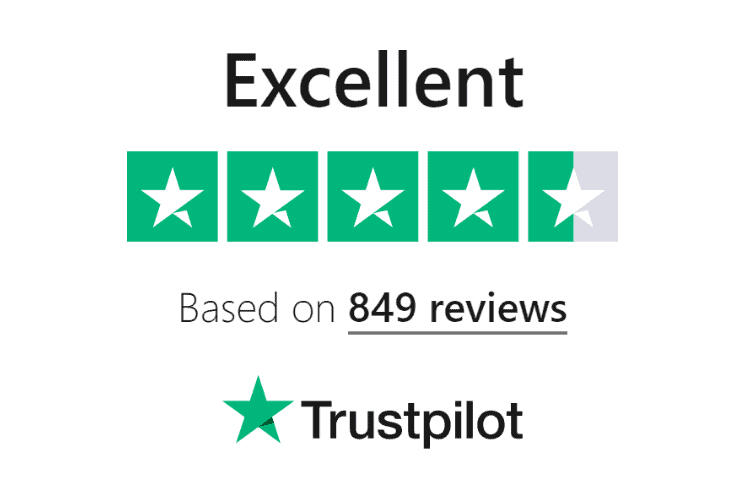
What is a UK Spouse Visa?
A UK Spouse Visa is for non-UK residents aged 18 or over who are engaged, married to, or has a proposed civil partner who is aged over 18 living in the UK. It is a type of settlement visa known as the UK partner visa.The qualifying criteria vary depending on your partner’s situation. You need to apply for a UK Partner Visa if you are coming to the UK to join your partner or spouse from outside the European Economic Area.If you hold a Spouse Visa in UK, you have the right to work like all British citizens. However, you cannot claim most benefits, such as public funds, housing allowance or tax credits.

Who can apply for a Spouse Visa?
You can apply for a UK Spouse Visa if you are:-Aged 18 years or over
-Married or in a civil partnership that is recognised by the UK
-Married to a British citizen or UK settled person
-You have been living together in a relationship for the past 2 years and you can prove it
-You are engaged, or you hold a Fiance Visa UK and will get married within 6 months of being in the UKBritish citizens can send the leave to remain forms on their partner’s behalf as long as they are eligible. You must list their name and information as the applicant’s details.
What are the requirements for a Spouse Visa?
Before you submit your application for a UK Spouse Visa, you need to:-Have all the required documents
-Pass the ‘Genuine Relationship Test’
-Meet the minimum income threshold and the financial requirement
-Demonstrate your knowledge of the English language
-Have proof of suitable accommodation for you, your partner and any dependants
-Get your biometrics taken to get leave to remain
-To remain in the UK, you may also need to pass a medical test to show you don’t have Tuberculosis (TB), depending on the applicant’s country of residence
What is the ‘Genuine Relationship Test’?
The UK Spouse Visa applicant needs to be able to prove they are in a genuine relationship, such as a civil partnership, with their British citizen partner. There are lots of different types of evidence you can send to the Home Office, such as:-A joint mortgage or tenancy agreement, either in the UK or outside the UK
-Evidence of any children you have together, such as a birth certificate
-Photographs that show you have spent time together frequently
-A shared bank account or savings
-Text messages or social media chat logs
-Travel documents that prove you’ve visited each other at least once before you got married
-Any documents which prove that you intend to live together in the UK
Get in touch with our expert immigration lawyers to learn how to apply for a Spouse Visa.
What are the Spouse Visa financial requirements?
The UK national of the relationship is known as the sponsor, and he or she is required to meet specific criteria.First, you will need to prove that you and your wife/husband/partner meet the financial requirement and have enough money to support yourselves without claiming public funds.The UK spouse needs an income of at least £18,600 before tax if there are no dependent children.If you have one dependent child, you will need an extra £3,800 before tax to meet the financial requirement. For any other children, the sponsor will need an extra £2,400 for each subsequent child.What if I don’t meet the financial requirement?If you don’t have enough money from all the listed sources of income to meet the mandatory Partner/Spouse Visa financial requirement, or you are unsure about your income, seek the advice of our specialist immigration lawyers, as exceptional circumstances may apply.
What are the Spouse Visa required documents?
Making sure you have all the correct documents to support your UK Spouse Visa application will help to ensure it is successful and prevent delays.These are the documents you will need to send to the Home Office to get the right to remain in the UK:-Your original marriage or civil partnership certificate
-Proof that you and your partner have been living together for at least the past two years
-A valid passport to get leave to remain in the UK
-A valid certificate to meet the English language requirement
-Proof of accommodation
-Proof that the relationship is genuine
-Proof that you meet the income threshold and the financial requirement
-Proof that you are married to a British citizen or settled person (for example, UK citizens can submit a copy of their passport)
Please note that any documents that are not in English need to be accompanied by a translated version from a professional translator. All evidence must be in the exact format required by the Home Office.
What sources of income can be included towards the Spouse Visa financial criteria?
To meet the minimum income requirement for your UK Spouse Visa application, you can use:-Savings over £16,000
-Earnings from employment or self-employment
-Maternity, paternity, adoption or sick pay
-Pensions
-Other income such as that generated from rent or shares
If your partner is applying from outside the UK, they can use their savings to contribute towards the total income amount – but not their earnings. Nevertheless, if your partner is working in the UK, their earnings can count towards the total amount.You can also use a combination of savings and earnings to help you meet the minimum income threshold. However, you will need to prove you have enough financial support for the entire length of the permit.To see how much you will need in savings, first subtract any other eligible income from your minimum requirement. Then, multiply this figure by 2.5 and add 16,000.
Can I use income from benefits for my case?
There are cases where you won’t need to meet the mandatory eligibility criteria, such as if you are claiming any one of the following benefits:-Disability Living Allowance
-Severe Disablement Allowance
-Industrial Injuries Disablement Benefit
-Attendance Allowance
-Carer’s Allowance
-Personal Independence Payment
-Armed Forces Independence Payment or Guaranteed Income Payment under the Armed Forces Compensation Scheme
-Constant Attendance Allowance, Mobility Supplement or War Disablement Pension under the War Pensions Scheme
-Police Injury Pension
You will, however, need to prove that you have enough money to support your dependents. This is called ‘adequate maintenance’, and the exact amount you need will depend on your individual circumstances.Typically, you will need at least £120 per week after you have paid for housing. If you have a child or children, this amount will increase.
What is the Spouse Visa English Language Test?
Applicants who wish to live in the UK, need to be able to prove that they can speak English. Once you have passed an English Language Test, it will be valid for two years.You must sit an English test in speaking and listening to get the right to remain in the UK with your UK spouse. Your qualification will be valid only if your English exam is taken through an approved Secure English Language Testing (SELT) Provider.Currently, SELT tests for immigration purposes are only available through the Trinity College London or the IELTS (International English Language Testing System) Consortium.You do not need an English Language test if you:-Are a national of a majority English speaking country
-Are aged under 18 or over 65
-Have a long-term physical or mental conditionHold a degree or any educational establishment that was taught or researched in English. Your qualification will only be valid if confirmed by UK NARIC.

If you wish to find out how you can settle in the UK with your partner, our team is happy to assist.
What are the UK Spouse Visa accommodation requirements?
As part of your UK Spouse Visa application, you will need to present proof of accommodation that meets UK living standards.Your UK national partner, who acts as your sponsor, will need to show that he or she can provide adequate accommodation for themselves, the applicant and any dependents who intend to live in the UK.For proof of accommodation, the Home Office will ask you to provide:-A description of the property where you intend to live with your spouse
-Proof that there are enough rooms in the property to accommodate everyone
-Evidence that you can afford to pay for your family’s accommodation
How can I qualify for the Spouse Visa accommodation requirements?
To qualify, your property needs enough rooms to accommodate the couple and any dependents. Each person needs an individual room, however:-Couples can share the same bedroom
-Living rooms can be included when counting bedrooms
-Children under 1 do not need their own room
-Children aged 1-9 years old count as half a person
-Children aged 10 years or over count as an adult
-Children aged 10 years or over of the opposite sex cannot share a room
This means that two children aged under 10 years can share one room, and babies under one year old can live in the same room as the couple.
How to apply for a Spouse Visa
Ensure you start your Spouse visa application ahead of your planned move to the UK, and do not book your flight or travel before you get a visa approval from the Home Office.The UK Spouse visa application process can start online by completing Appendix FM and other forms from outside the UK. However, you may need to visit a visa application centre to give your biometrics as part of the process. Note that there are several forms and documents involved, and they must be filled correctly with sufficient evidence to increase your chances of obtaining a UK Spouse or Partner visa.If you are applying from within the UK, the process is different as you will need to show proof that you are in the country on an eligible visa to switch to the UK spouse visa.When reviewing your application, if the Home Office has any doubts about your application, you may be invited to come for a Spouse visa interview. During the interview, you will be asked questions to determine the genuineness of your relationship and intent in the UK.The Spouse visa application process can be lengthy and difficult to go through alone. We can help. Contact us now on 020 7183 1734 or make an enquiry online to speak with one of our immigration lawyers about your application for a Spouse Visa UK
How much does a UK Spouse Visa application cost?
The Home Office’s current fee for a Spouse visa is £1,538 for any application submitted from abroad. If you are submitting your application from within the UK, the cost is reduced to £1,048. This charge will increase if you are applying with dependents and will increase for each dependent.You can only apply from inside the UK if you are not trying to enter the country as a visitor or have been given leave to stay in the UK for more than 6 months. You also cannot apply for a fiance(e) or proposed civil partner permit from inside the UK.There are additional costs related to your UK Spouse Visa application that you should consider when you send your forms. This includes:-Qualified translation services for your documents that are not in English or Welsh
-An approved English test, that is a mandatory requirement for the majority of applicants
-Additional fees for the Home Office’s Priority Premium Service, if you wish to receive an answer from the UKVI within five working days
-Immigration health surcharge
What happens if my UK Spouse Visa application is accepted?
When your application is accepted, you will be given leave to remain, that allows you to enter the UK within a 30-day period. Upon arrival in the UK, you will have a 10-day period in which to collect a Biometric Residence Permit (BRP).If you fail to enter the UK within this time-frame, you can submit an application for another 30-day entry permit. However, you will be charged an additional fee.
What happens if my Spouse Visa application is rejected?
If your case is rejected, you can appeal against the Home Office’s verdict. This is a long-winded and challenging process that is best assisted by an immigration adviser.We can assist with all aspects of your case. If you need help with your Spouse Visa appeal application, please get in touch, and our immigration specialists will be able to assist you.
Can I renew or extend a UK Spouse Visa?
You can renew and extend your UK Spouse Visa for another 2.5 years, as long as your current leave to rmain hasn’t expired.After you have lived in the UK for a total of 5 years on your Marriage visa, you can apply for settled status (ILR). Get in touch with our lawyers if you need to apply for a UK Spouse Visa renewal.
How long does the Partner Visa process take?
It usually takes between 2 to 12 weeks for a UK Spouse Visa case to be processed.The Partner Visa processing time can vary depending on the documents provided and the country where the application is submitted from.
Spouse Visa appeal process
If you wish to submit a Spouse Visa appeal, you should act quickly and follow the below steps:1. Submit your appeal to the Immigration Asylum Chamber within 28 days of receipt of the refusal decision if overseas, or 14 days if your application was made inside the UK
2. Ensure that your grounds for appeal are legitimate and are likely to be accepted
3. Prepare your case to submit the strongest possible application to the Immigration Tribunal
4. Gather the supporting documents to demonstrate why your application should be accepted
5. Attend your hearing at the Tribunal (if relevant)
How long does the Spouse Visa appeal process take?
Unfortunately, the appeal process can be quite lengthy. Some applicants may have to wait up to 12 months or longer for a decision to be made on their appeal against a Spouse Visa refusal.Some of the reasons for refusal include:-Failing to meet the financial or language requirements
-Failure to prove that the marriage is genuine and subsisting
-Not submitting the correct supporting documents
-Incomplete or inaccurate application
The best way to avoid having to go through the Spouse Visa appeal process is by ensuring that your initial application is as accurate as possible.
How can V&I Advice help?
Spouse Visa applications can be complex, and using the services of an immigration expert is highly recommended. You will need to ensure that you meet all of the mandatory requirements and complete the relevant forms and collate your evidence for submission. This will need to be extensive and prove that your relationship is genuine.At V&I Advice, we understand the importance of being close to loved ones, and we make it our priority to maximise your chances of doing this.Our team of specialist immigration advisers can guide you through each step of your application process for a Partner Visa in the UK. Our services include:-liaising with you in person, via phone or Skype at a time that suits you;
-assessing your eligibility;
-checking your documents to ensure that they are sufficient for your Partner Visa application;
-ensuring that you have enough proof that your relationship is genuine;
-preparing a Letter of Representation to accompany your application;
liaising with the Home Office until your case is resolved;
-completing each part of your application form to the highest standard.V&I Advice has an excellent track record with successful cases, and our lawyers are highly experienced in this field. To apply for a UK Spouse visa, get in touch with V&I Advice online or on 020 7183 1734 today for professional, no-obligation advice or assistance.
We offer immigration advice sessions as face to face appointments at our UK office, or via the phone.
Frequently Asked Questions
Spouse Visa Extension
The UK government recently announced a change to the minimum income requirements from £18,600 to £38,700. This comes into effect in April 2024 and affects three-quarters of Brits. Get in touch with us now for advice or support.The Spouse Visa extension can be applied for before your Spouse Visa is due to expire. It enables a person to live in the UK for a further 30 months. Call us on 020 7183 1734 for immediate help & assistance with your situation. We’re here to help you in person, via the phone or online.
Request a call back from our immigration experts
What is a Spouse Visa extension?
The Spouse Visa extension is designed for non-EEA residents who have been living in the UK under a Spouse Visa.If you wish to stay in the UK when your initial Spouse Visa expires, you can apply for a Spouse Visa renewal or extension. The Spouse Visa extension, like the Spouse Visa, lasts for 30 months or 2.5 years. When the extension expires, you can apply for Indefinite Leave to Remain status, which can eventually lead to British citizenship.The requirements for the extension are similar to the original Spouse Visa and include being able to prove that you have been in a genuine relationship with your spouse/partner, and intend to carry on living together in the UK.Also, in most cases, an applicant will need to be able to show that they have a combined income with their spouse/partner of at least £18.600. Detailed below is all you need to know about the Spouse Visa extension after 2.5 years and beyond Spouse visa renewal.
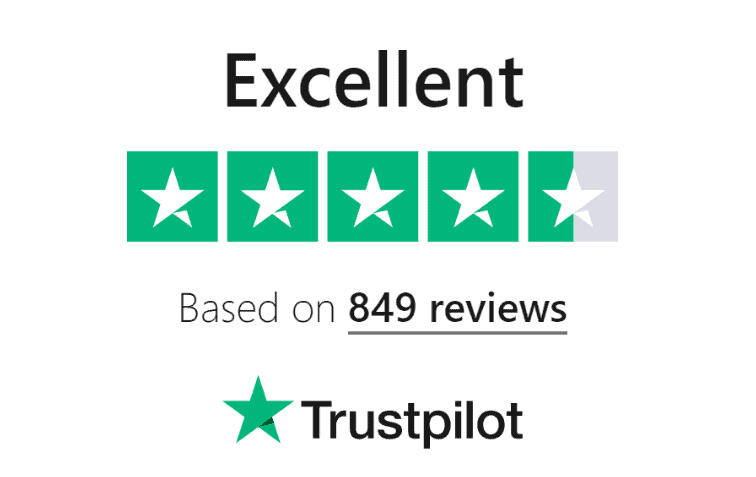
What are the Spouse Visa extension UK requirements after 2.5 years?
The Spouse Visa requirements you need to meet to be eligible for an extension vary depending on the individual’s personal circumstances, but a universal condition is proof of the relationship between you and your partner.Your spouse/partner needs to be a British citizen or have settled status, such as Indefinite Leave to Remain, in order for you to be eligible for the extension. It is also possible to apply to extend your time in the UK if your partner has refugee status or humanitarian protection status in the UK.You must be able to prove that the relationship between you and your partner is genuine and recognised in the UK, whether it is a marriage or civil partnership. Alternatively, you need to show that you have been in a relationship which is akin to a marriage or civil partnership for at least two years.In addition to the genuine relationship requirement, the majority of applicants will need to fulfil these eligibility criteria:-Have a combined income with your partner/spouse of at least £18,600
-Have not breached any law or immigration condition
-Ability to meet the English language requirements
-Meet character suitability conditions
What do I need to know about the relationship requirement?
When you apply to extend your Spouse Visa, you will need to prove that you are in a genuine relationship. As part of this requirement, an applicant will need to include a civil partnership/marriage certificate, which is recognised in the UK, with their application. If the applicant is not in a marriage/civil partnership with their partner, they will need to provide information which shows they have been in a long-term relationship with their partner.In addition to this, an applicant will need to provide further evidence to prove that they have been living with their partner for the duration of their residency in the UK.If you provide correspondence addressed to the spouse and the applicant at the same address, this can be used as evidence of the relationship.The Home Office may wish to see information such as council tax bills, utility bills and bank statements. Any evidence which you provide needs to be in its original form, dated and on headed paper.Ultimately, you need to be able to demonstrate that you have been living with your partner during your UK residency, and that you intend to carry on living with your partner in the UK throughout the period of the extension and, potentially, beyond.
If you need any guidance or support in your Spouse Visa extension application, call us today.
What is the financial requirement for an extension?
In the vast majority of cases, Spouse visa holders looking to renew their visa will need to provide information on the financial situation of themselves and their partner.The basic financial requirements for an extension are as follows:-The applicant and their British citizen/settled spouse must have a combined income of at least £18,600
-If the applicant has a child, the minimum income threshold rises to £22,400
-The threshold increases by a further £2,400 for each additional child the applicant has
A child is defined as someone who is under the age of 18, not from an EEA country and is dependant on you or your partner.The financial requirement can be met through different means, including:-Income from employment or self-employment of yourself and your partner
-Cash savings over £16,000
-State and private sessions
-Maternity allowances
-Bereavement benefits
Do note that income from certain other sources might be accepted. It is prudent to seek the guidance of an immigration specialist, who can help you establish which forms of income will be accepted to go towards the financial requirement.Call us on 020 7183 1734 to speak with an immigration specialist who can provide you with any help, support or guidance you may need.
Financial requirement exemptions
Whilst the financial requirements are a significant part of most Spouse visa applications, certain individuals will not need to meet them if they want to stay in the UK.If your partner (sponsor) is in receipt of one of the following benefits, you will not need to fulfil the financial requirement:-Disability Living Allowance
-Severe Disablement Allowance
-Carer’s Allowance
-Attendance Allowance
-Personal Independence Payment
-Industrial Injuries Disablement benefit
-Police Injury Pension
-Armed Forces Independence Payment or Guaranteed Income Payment under Armed Forces Compensation Scheme
-Constant Attendance Allowance, Mobility Supplement or War Disablement Pension under War Pensions SchemeWhat are the character suitability requirements?
Spouse Visa extension applicants will need to meet character suitability conditions, otherwise known as the good character requirement. The Home Office will consider your immigration history as well as your conduct whilst you have been in the UK.If you have broken the law or fallen foul of any conditions placed on your UK residency, you will not meet the character suitability requirement. The Home Office will also take into account whether you owe money to the NHS or owe a litigation debt of some kind.If you have lived lawfully in the UK and have behaved responsibly, generally speaking, you should meet the character suitability requirement.
What is the Spouse Visa extension English test?
The Home Office made changes in 2017 relating to the English language test for all applicants.These changes stipulate that a Spouse Visa applicant will usually need to provide evidence of an A2 level of English in speaking and listening as set out by the Common European Framework of Reference for Languages.Some people who did not need to take the English language test when they applied for their original Spouse Visa, may need to when applying for an extension.The test can be taken at a number of different centres throughout the UK. Bear in mind that you will need to take the test at an approved Secure English Language Testing (SELT) Provider centre.If you do not take the test at an accredited centre, your certificate will not be recognised and, consequently, your extension application will be rejected.English language test exemptions
There are a number of applicants will not need to take the English language test.This includes:-A national of an English-speaking country
-Someone who holds a degree or higher qualification from an institution recognised by UK NARIC which was taught /researched in English
-A person aged under 18 or over 65
-Someone with a long-term physical or mental condition
What is the Spouse Visa extension form?
When applying for a Spouse Visa extension after 2.5 years, the form you need to complete is the FLR(M). It is an extensive application and requires you to provide a variety of information and documents. It is essential that you complete the FLR(M) form fully and correctly. Any mistake, however minor, will result in a refusalIf the Home Office deems you to have not provided sufficient evidence, they may request a face-to-face interview, which you are obligated to attend.Which documents are required?
As alluded to, you will need to provide a number of documents which demonstrate that you are eligible for a Spouse Visa extension.You need to provide the documents in their original form, though there is some leniency afforded with financial documentation.Depending on your circumstances, some of the information which you will need to provide includes:-Personal details. You will be required to provide your current passport or other valid travel ID. If you have any previous passports, you’ll be expected to provide a copy of the photo page together with copies of any pages that include a visa stamp. You will also need to provide documents relating to your partner and any children you are applying on behalf of
-Financial documents. Bank statements and payslips will need to be provided. It is acceptable to provide electronic financial documents if they come accompanied with a letter from the issuing authority
-Certified English language test certificate (unless exempt)
-Details and proof of relationship. A marriage or civil partnership certificate accepted under UK law You will need to be able to demonstrate that you are both in a genuine relationship and that you have been living together for the duration of your residency in the UK
Spouse Visa extension application advice
We will do everything we can to make sure that your chances of success in your Spouse Visa extension application are maximised. You will be assigned an experienced lawyer who will assess your situation and eligibility.Call us on 020 7183 1734 or make an enquiry online to begin your application for a UK Spouse Visa extension.
Spouse visa extension assistance
The IAS offer a wide range of services, and our immigration specialists are committed to helping couples settle and stay in the UK. You will be assigned an experienced lawyer who will assess your situation. We will then complete and send your spouse visa extension application.Call us on 020 7183 1734 or make an enquiry online to find out more about our services.
What is the Spouse Visa extension fee?
The current standard fee for Spouse Visa extension applications is £1,033. However, there are other fees which may need to be taken into consideration.If any of your documents or information are written in any language other than English or Welsh, they will need to be professionally translated. Also, if you are required to sit the English language test, this is another cost to take into consideration.As part of the application, a Biometric Residence Permit (BRP) will be taken, which costs an additional £19.20. The BRP collects your name, date and place of birth as well as fingerprints and a photo of your face.
What is the Spouse visa renewal application process?
Once you have gathered all your evidence and documents together and completed the FLR (M) form, your application needs to be sent to the Home Office.It is essential that you make the full payment once the application is complete and ready to send. If you fail to make the payment in full, your application will be automatically rejected,Standard UK spouse visa applications for renewal should take no longer than eight weeks to process. However, it is possible to receive a much quicker decision through the super priority service available for most UK visas. This service will process the renewal application within one working day and costs an additional £610.
What can I do if I receive a rejection?
If you receive a rejection on your spouse visa extension application, you will be informed on your rejection letter of the options available to you. If there was an obvious reason for the refusal, the best course of action is to complete and send another application which rectifies the problems.If you believe that your application has been unfairly refused, you will usually be able to contend the Home Office’s decision. You might be able to do this through an official Spouse visa appeal or through an administrative review. Your rejection letter will state whether you can go down these routes.The last option is to proceed with a Judicial Review, though do bear in mind that this is a lengthy and complicated process.
What are the next steps after a Spouse Visa extension?
If your spouse visa extension application has been accepted, you will be permitted to stay in the UK for a further 30 months (or 2.5 years). This will mean that once the extension has expired, you will have lived in the UK for a total of five years.If you intend to become permanently settled in the UK, the next step would be to apply for Indefinite Leave to Remain status. This is a form of permanent residence and enables a person to live and work in the UK without restrictions.Once someone has been living in the UK under Indefinite Leave to Remain for 12 months, they will be eligible to apply for naturalisation and to become a British citizen. They will also become eligible to apply for a British passport.
We are immigration specialists that care about your personal circumstances and immigration needs.
Frequently Asked Questions
UK Spouse Visa Requirements
The UK government recently announced a change to the minimum income requirements from £18,600 to £38,700. This comes into effect in April 2024 and affects three-quarters of Brits. Get in touch with us now for advice or support.Our team of immigration lawyers can guide you through your Spouse Visa application process.Call us on 020 7183 1734 for immediate help & assistance with your situation. We’re here to help you in person, via the phone or online.
Request a call back from our immigration experts
Spouse Visa Requirements
The UK requirements for a Spouse Visa are some of the most challenging to meet. To prove that you are eligible, you will have to provide extensive documents which show your relationship is genuine. Your UK sponsor will have to earn over £18,600 a year. You will also need to have adequate housing provisions.The exact visa you need will depend on your individual circumstances. If you are hoping to move to the UK to be with your partner, you must make a Spouse Visa application. You can also either apply as a Fiancee or Unmarried Partner of a British citizen or a person with settled status. If you want to apply for a Spouse Visa, your partner must either be a British citizen by birth or a naturalised British citizen.If you meet the UK’s Spouse Visa requirements, a Fiance Visa will only be issued for a six month period, during which you would be expected to get married. An Unmarried Partner or Spouse Visa is valid for 30 months. After 30 months, you will be able to apply for an extension for a further 30 months. After the five year period has come to an end, you will be eligible to apply for Indefinite Leave to Remain (ILR) and, at a later time, for Citizenship in the UK.
The UK Spouse Visa requirements
To get a Spouse Visa in UK, you must be married to a British citizen or a person who hold Indefinite Leave to Remain. Besides, you must meet specific requirements, such as:-The genuine relationship requirement, meaning that you and your partner must demonstrate that you are in love and you intend to live together permanently.
-The financial requirements, as you will need proof that you can support your family without seeking public funds.
-The accommodation requirement, to offer your family adequate accommodation to live together in the UK
-The English language requirements, meaning that you must be able to speak and understand English.You will need to prepare a comprehensive bundle of documents to demonstrate your eligibility for all these requirements. Get in touch with the V&I Advice immigration lawyers to receive professional support with your application.
Partner Visa require application documents
To make sure that your application is successful, you must prepare a bundle of supporting documents, which must contain the following paperwork:-Any proof that you and your partner are in love: pictures of you two together, chat and call logs, shared bank accounts, money transfers.
-Proof that you have met each other at least once.
-Proof of the applicant’s English fluency. This may be the results of the IELTS test, an English-taught degree, or a passport from an English-speaking country.
-Proof that you meet the minimum income requirement: bank statements, wage slips, job contracts which include your salary
-Proof that you meet the accommodation requirement, such as a shared tenancy agreement or mortgage.
-Any other documents that can demonstrate that you and your partner are in a genuine relationship.Based on your circumstances, you may need to provide additional documentation. Speak to one of our experts today to receive professional help.
The genuine relationship requirement
To get leave to remain in the UK together, you and your British citizen partner must demonstrate that you are genuinely in love and that your relationship is subsisting.The main criteria for the Home Office to understand if your relationship is genuine are the following:-You must have physically met your partner at least once during your marriage.
-If you and your partner have been living in a committed relationship for at least two years but you are not married, you can apply for an Unmarried Partner Visa.You must prove that you have your partner have been spending some time together. To this end, you can submit chat and call logs, photographs of you two together, shared bank accounts.

UK Spouse Visa financial requirement
To meet the Spouse Visa financial requirements and stay in the UK, you and your partner must earn a combined gross annual income of £18,600. This increases by £3,800 for your first dependent child and £2,400 for any additional children.This can come from any of the following sources, including a combination of them:-Employment salary (including self-employment)
-Money from stocks and shares
-Pension
-Income from letting (if applicable)
-Savings (up to the value of £16,000)Your income can only be used towards your application if you are currently residing in the UK and are earning the money in the country.There may be cases where you are exempt from the financial requirements, this usually applies if you receive any of the following benefits:-Disability Living Allowance
-Severe Disablement Allowance
-Industrial Injuries Disablement Benefit
-Attendance Allowance
-Personal Independence Payment
-Armed Forces Independence Payment or Guaranteed Income Payment under the Armed Forces Compensation Scheme
-Constant Attendance Allowance, Mobility Supplement or War Disablement Pension under the War Pensions Scheme
-Bereavement benefitsIf you are eligible for these benefits, you will have to provide evidence of “adequate maintenance” for your spouse and the dependents. The Home Office is required to consider specified circumstances if the UK sponsor does not meet the minimum financial requirement.
UK Spouse Visa English language requirement
To get a Spouse Visa to stay in the UK, the non-British applicant must prove the Home Office to be able to speak and understand English to a proficient standard.To demonstrate your proficiency, you must either:-Have passed an approved English language test to the required level (A1 or higher, depending on your circumstances).
-Hold a degree from a recognised institution, which was taught or researched in English.
-Be from a country where English is the first spoken language.
The Partner Visa accommodation requirement
It is important that you and your partner have adequate accommodation for your family in the UK. This can be:A rented property
A temporary accommodation
A mortgaged or owned property.
As a general rule, an apartment with one room with a shared bed is sufficient for a couple. Nevertheless, your house must have an additional bedroom for each of your children over the age of one.
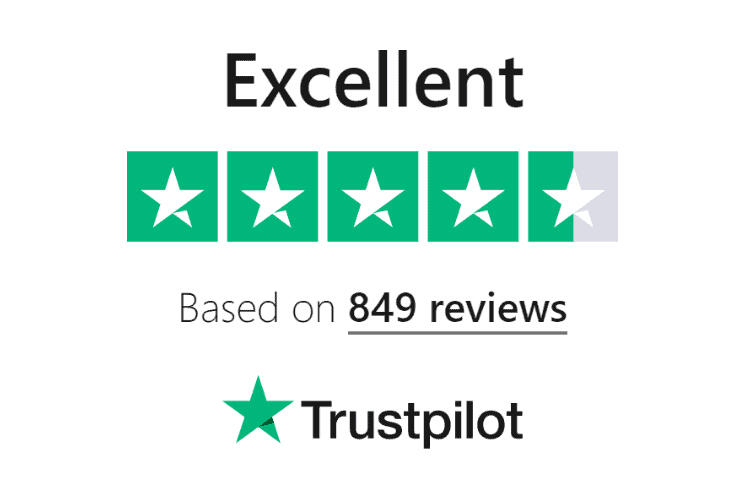
We offer immigration advice sessions as face to face appointments at our UK office, or via the phone.
Frequently Asked Questions
Spouse Visa Refused
The UK government recently announced a change to the minimum income requirements from £18,600 to £38,700. This comes into effect in April 2024 and affects three-quarters of Brits. Get in touch with us now for advice or support.If your Spouse Visa has been refused by the Home Office, one of our immigration lawyers can help you.Call us on 020 7183 1734 for immediate help & assistance with your situation. We’re here to help you in person, via the phone or online.
Request a call back from our immigration experts
UK Spouse Visa refusal
Applying for a Spouse Visa is often a complex and lengthy process, unfortunately many Spouse Visa applications are refused by the Home Office, this can be a disheartening experience as no one wishes to be separated from a loved one. Luckily, there are steps that you can take to give your Spouse Visa application the best chance of success, there are also steps that you can take if your Spouse Visa is refused.The V&I Advice team of expert immigration advisers are ready to help if you have had your Spouse Visa refused. We can liaise with the Home Office to see what the grounds of the refusal were and advise you on your eligibility for appeal. One of our lawyers can also provide you with high-quality legal representation throughout your appeal. Get in touch for advice on your options today by making an enquiry online or calling 020 7183 1734.
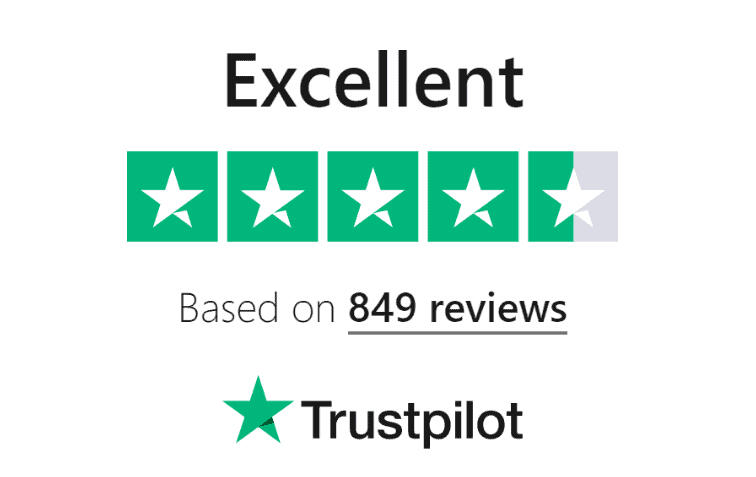
Why your UK Spouse Visa might be refused
There are several reasons why a Spouse Visa may be refused by the Home Office. It may be because you do not meet the Spouse Visa eligibility requirements, such as the financial requirements or the genuine relationship requirement. However, most Spouse Visa refusals are not due to the ineligibility of the applicant but rather due to a lack of evidence to prove that you are able to meet the requirements.The genuine relationship requirement can be notoriously hard to prove that you meet; your application may be refused if the evidence you supplied to show that your relationship with your partner is genuine was not substantial enough. It may also be refused if you submitted too many documents and it aroused suspicions that you did not intend to live with your spouse after marriage.The Home Office are trained to detect cases of marriage fraud in applications for Spouse Visas. They have very strict guidelines that can be difficult to navigate without the assistance of a professional immigration lawyer, and for this reason, having your Spouse Visa refused is common.
What to do if your Spouse Visa is refused
Having your Spouse Visa refused can be an upsetting event that is often detrimental to an individuals plans to join their family in the UK and begin a life together here. Luckily, a UK Spouse Visa refusal can be challenged through the appeal process.You can appeal a Spouse Visa refusal under human rights grounds using Article 8 of the European Convention on Human Rights which states that:“Everyone has the right to respect for his private and family life, his home and his correspondence…There shall be no interference by a public authority with the exercise of this right except such as is in accordance with the law and is necessary in a democratic society in the interests of national security, public safety or the economic well-being of the country, for the prevention of disorder or crime, for the protection of health or morals, or for the protection of the rights and freedoms of others.”If the Home Office is found to have breached their obligations under Article 8 by issuing you a UK Spouse Visa refusal, they may be forced to review their decision about your Spouse Visa application and you could be granted leave to remain in the UK.
What to expect from the Spouse visa appeal process
The Home Office usually explains your options in the decision letter you receive. In that letter, you should be able to know if you can appeal and the process of appealing the decision.If you wish to go forward with a visa appeal, the first step is to submit an appeal form within 14 or 28 days of getting your decision letter. 14 days is for those in the UK that applied to switch from another visa to a Spouse visa, and 28 days is for those who applied from outside the UK.When completing the appeal form, you can choose to have a decision made based on the details on your form or after an oral hearing where you can have representatives. You will also need to pay a visa appeal fee, which is £80 if you don’t want a hearing or £140 if you want one.When submitting your appeal form, you can add any information that can prove why you are eligible for the visa. This can include new information which you didn’t provide to the Home Office previously but adds to your evidence.If you wish to have an oral hearing, you will receive a date to have it in person at a UK tribunal Office, by phone, or by remote video call.The appeal process may take anywhere from a few weeks to months. If your UK spouse visa appeal is successful, the Home Office is to reconsider their decision and, in most cases, grant you the Spouse visa. If the appeal is not successful, you may be able to bring a case to the Upper Tribunal.
Can I submit a fresh application if my previous spouse visa application was refused?
Yes. If you do not wish to appeal or your appeal was rejected, you can file a fresh application. Before you do that, ensure that you meet the requirements and have all you were missing that led to the previous refusal. More tips are below.How to reduce your chances of a UK Spouse visa refusal
Detailed above are reasons why your Spouse visa application may have been refused. In most cases, it is due to ineligibility for the visa, mistakes in the application, or not providing enough documents/evidence to prove you meet the requirements.To avoid getting a refusal in your re-application for a UK Spouse visa, ensure that your application is complicated with meticulous care. Check thoroughly to remove any mistakes and submit enough evidence to prove you meet the Spouse visa requirements.Your documents should show you are in a genuine relationship with your British partner or someone with settled status in the UK; such documents may include a civil partnership or marriage certificate, lease/tenancy agreements, and photographs together. Also, you should submit documents that prove you meet the financial requirements and every other requirement for this visa.Regardless of the option you are leaning towards (appeal or reapplication), we suggest you reach out to an immigration lawyer to find out which path will give you a higher chance of walking away with a Spouse visa and assist with ensuring that is the case. You can call us today on 020 7183 1734 to discuss or reach out via live chat or contact form.
How can V&I Advice help?
If you have had a Spouse Visa refused, our lawyers are here for you. Here at V&I Advice, we are experts in all areas of UK immigration law, including the appeal process. If you choose to hire one of our lawyers to assist you with your Spouse Visa application they will ensure that you have the highest chance of success. Your lawyer will be there for you throughout the application process ensuring that you have all the documents required to prove that you can meet the eligibility requirements.If you have already had your Spouse Visa refused, our lawyers can still help you to appeal the decision. The appeal process is incredibly complex and can be very time consuming, sometimes taking up to 12 months. Our lawyers can use their substantial knowledge of UK immigration law to support you throughout the appeal process.Our lawyers will prepare and help you to gather all the necessary documents and paperwork required during the appeal process and will represent you before the tribunal or court.For expert advice regarding your Spouse Visa application, speak to our immigration lawyers today by calling 020 7183 1734.

We offer immigration advice sessions as face to face appointments at our UK office, or via the phone.
Frequently Asked Questions
Spouse Visa Curtailment after Separation or Divorce
If you wish to remain in the UK after your divorce, our immigration lawyers are ready to offer their help.Call us on 020 7183 1734 for immediate help & assistance with your situation. We’re here to help you in person, via the phone or online.
Request a call back from our immigration experts
Spouse Visa Curtailment After A Divorce
If you are going through a divorce while living in the UK with a Spouse Visa or Civil Partner visa, you may be worried about retaining legal residency after the Spouse Visa curtailment. It is important to assess your options for staying in the UK after a divorce. It is also highly recommended that you seek the help of an immigration lawyer, who can help you find the right visa to remain in the UK.So what happens to your Spouse Visa after a divorce? According to UK law, the dependent party will no longer be eligible to live in the UK as their leave is reliant on their relationship with the UK sponsor. However, there are a number of options which may be available to you in order for you to stay.
Page Contents
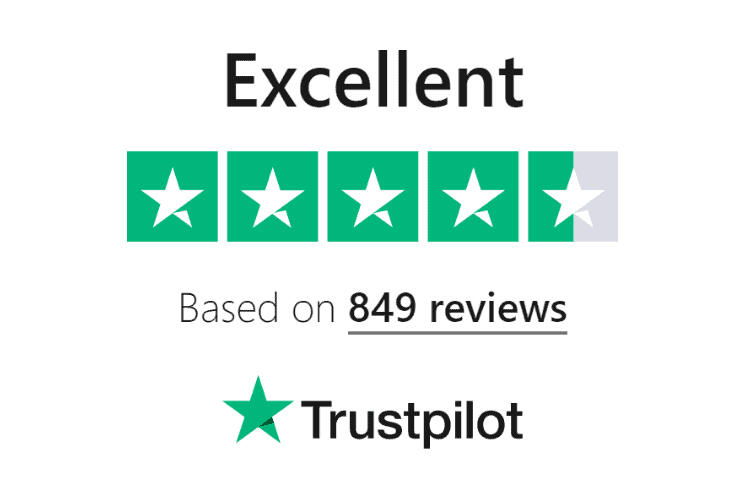

What Will Happen to my Spouse Visa if Separate From My Spouse or Partner?
If you are in the UK on a Spouse Visa and you separate from your spouse or partner or your relationship breaks down, you will be subject to a Spouse Visa curtailment and your visa will be cut short.This is because your Spouse visa is only valid in the UK as long as your relationship is genuine. If your relationship with your partner ends, you will no longer be eligible to remain in the UK on your visa, and you will have to seek other arrangements.The Home Office will usually allow you 60 days to make arrangements for leaving or remaining in the UK. You must make the Home Office aware as early as possible that your marriage has ended.Overstaying on a cancelled Spouse Visa can have dire consequences in the long run, including being convicted of immigration fraud, immediate deportation and being barred from reapplying to the UK.
What Information Do I Need to Give to the Home Office?
When your Spouse visa relationship breaks down, you will need to contact the Home Office by email (or by letter, if you don’t have access to email).Your email must contain both your and your ex-partner’s:-Name
-Date of birth
-Address
-Passport number
-Home Office reference number
If you or your ex-partner have children in the UK, you must also include:-Their names and dates of birth
-Names of their parents or guardians, and who they live with
-How much time they spend with you or your ex-partner
-How much child maintenance or financial help you give each other
-Details of any family court cases you’re involved inAlongside this, you should also attach either:-A public statement if you do not want the Home Office official to tell your ex-partner any details from your email
-A consent form if you’re happy for the Home Office official to tell your ex-partner details from your emailYou will need to make sure that you print one of these forms off, sign it, and attach a scanned copy of it to your email.
How Do I Contact the Home Office?
Your notification to the Home Office should be sent to: [email protected]Make sure to include the words ‘MARRIAGE BREAKDOWN’ in the email subject line.If you’re unable to send an email, you may instead send a letter to the following address:UK Visas and Immigration
MARRIAGE BREAKDOWN
Status Review Unit
7th Floor
The Capital
New Hall Place
Liverpool
L3 9PPMake sure that whichever method you choose, you include all the necessary information and a signed public statement or consent form.
For assistance with your Spouse visa after separation or divorce, contact us today.
What Are My Options After a Spouse Visa Curtailment?
After you notify the Home Office of your relationship breakdown, you will need to check what your eligibility will be to continue staying in the UK.You will normally have 60 days to do either of the following:-Apply to stay in the UK under a different visa or a settlement scheme
-Start preparations to leave the UKNote that if your Spouse visa already had less than 60 days’ worth of validity when you informed the Home Office of your relationship breakdown, your visa’s expiry date will remain as it is.Additionally, the Home Office may decide to either curtail the visa immediately without the 60 day grace period, or allow for a longer curtailment period.Longer periods of curtailment are usually only given in exceptional circumstances, such as if the visa holder has been a victim of domestic abuse or domestic violence.
How Can I Stay in the UK After a Spouse Visa Curtailment?
In order to stay in the UK after a Spouse visa curtailment, you will have to apply for a new immigration status. Some of the options available to you may include:-A work visa, such as the Skilled Worker visa
-Apply for another Family visa, either:
-As a parent of a child who is a British citizen, is settled in the UK, or has lived in the UK for at least 7 years
-On the basis of your private life, such as if you’re between 18 and 24 and you’ve lived continuously in the UK for more than half your life, or if you’re 18 or over, have spent less than 20 years in the UK and would have significant problems living in the country you’d have to go to
-The EU Settlement Scheme, if you’ve retained right of residence
-Indefinite leave to remain, if you’ve spent 5 years’ worth of qualifying residence in the UKIf you’re unable to find a suitable immigration route that you’re eligible for, it is likely that you will have to leave the UK once the 60 day curtailment period expires.
How can V&I Advice help?
Our dedicated immigration solicitors can help you if you are experiencing a Spouse Visa or Civil Partnership visa curtailment. There is a short timeframe in which you must make a decision if you want to remain in the UK if a Spouse Visa is curtailed after a divorce.Our lawyers are based around the country and can meet with you immediately to discuss your different options. We will work with you to assess your best visa options, quickly and comprehensively.For expert advice regarding your Spouse Visa application, speak to our immigration lawyers today by calling 020 7183 1734 use our online enquiry form to discuss your options for staying in the UK after a divorce.
Frequently Asked Questions
N
F
F
F
F
FFfF
F
F
F
Fiance Visa UK
The UK government recently announced a change to the minimum income requirements from £18,600 to £38,700. This comes into effect in April 2024 and affects three-quarters of Brits. Get in touch with us now for advice or support.If you and your partner wish to settle in the UK together, you can apply for a Fiancé Visa.Call us on 020 7183 1734 for immediate help & assistance with your situation. We’re here to help you in person, via the phone or online.
Request a call back from our immigration experts
What is a Fiance Visa?
If you intend to relocate to the UK to begin a new life with your UK-based partner, you could be eligible for the UK Fiance Visa. The Fiance Visa is designed to enable non-EEA nationals to enter the UK to marry/enter into a civil partnership with their UK-based partner, and to begin a new life here. The applicant’s partner must be either a UK citizen or a person with settled status in the country.Fiance Visas last for 6 months and they are granted under the assumption that you will marry your partner within the validity period of the visa.You must apply for another immigration permission to remain in the UK after your Fiance Visa expires. The simplest is to switch from the UK Fiance visa to the Spouse Visa, which grants holders 30 months of residence in the UK. You can look for employment and study in the UK as a Spouse Visa holder, without any restrictions.
Page Contents
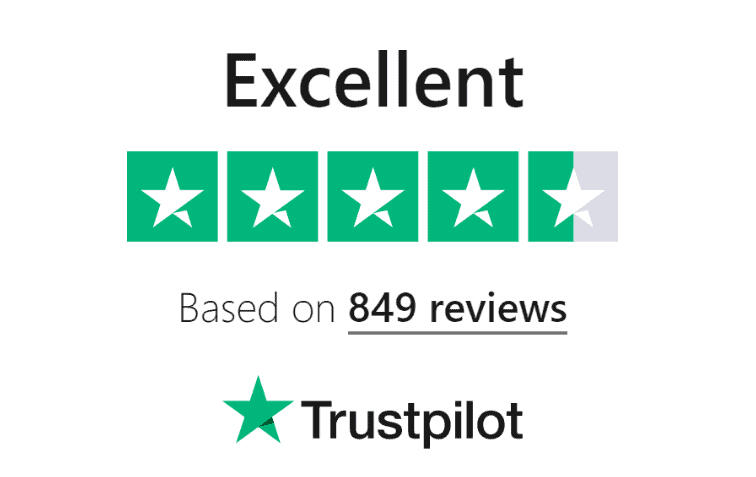
Who is eligible for a UK Fiancé Visa?
To be eligible for the Fiance Visa, both you and your partner must meet certain conditions and requirements.The main eligibility criteria in 2022 are as follows:-Both you and your partner must be at least 18-years-old
-You must be planning to get married within the 6-month validity period of the Fiance Visa
-Your partner must be a UK citizen or a person with settled status
-You must intend to live with your partner in the UK once you are married/in a civil partnership
-You need to demonstrate that you have the means to financially support yourselves as a couple and won’t become a financial burden on the state. You must have a combined income of at least £18,600 annually
-You need to show that you have suitable accommodation to live in with your partner and your dependents
-If you are from a non-English-speaking country, you need to take an approved SELT test to prove that you can understand and communicate in English to the level of A1 as set by the Common European Framework of Reference for Languages
What are the income requirements for a Fiancé Visa?
In your Fiance Visa UK application, you will need to provide evidence which demonstrates that you meet certain minimum financial thresholds.You need to prove to the Home Office that as a couple you have enough money to support yourselves whilst you are in the UK (as well as any dependents included in your application).Your combined annual income must be at least £18,600. If you have any child dependents who will be joining you, this sum increases by £3,800 for your first child and £2,400 for each child after your first.You can prove your finances through any of the following:-Regular salary through employment
-Self-employment
-Statutory sick pay, maternity, paternity or adoption pay
-Savings
-Stocks and shares
-Pension payments
-Property financial gains, such as a regular income from rentIt is important to note that as a Fiance Visa holder, you will not be classed as a permanent resident and therefore, you will not have access to public funds.
Documents required for a Fiancé Visa
If you want to apply for a Fiance Visa, you will need to provide certain information and documents which prove that you are eligible for the Fiance Visa.You will need to provide information about yourself and your UK-based partner, as well as any dependents who you want to add to your application. Some of the information which you will need to provide includes:-Your name and date of birth
-Copies of the photo page of any old passports and visas
-Information about the relationship you have with your partner. This includes how long you have been together, how you met and how often you see each other
-Details of anyone you previously married or had children with
-Divorce certificates (if applicable)
-Details of any criminal convictions
-Details of the countries outside the UK which you have lived in and visited
-The date of birth and nationality of your parents if you are applying from outside the UKHere at the Visa & Immigration Advice, we can advise you on all the documentation and information which you will need to provide in your portfolio of evidence. We will help you to source, gather and compile all your documentation, whilst ensuring your evidence adheres to all necessary administrative standards.Call us now on 020 7183 1734 to find out more about how we can help you.
What is the English language requirement?
If you are from a non-English-speaking country, you will need to fulfil an English language requirement as a Fiance Visa applicant, unless you are exempt (more below).
You need to demonstrate that your level of English in reading, writing, listening and speaking is at least to the level of A1 as set by the Common European Framework of Reference for Languages.You will need to pass a SELT test at the level of at least A1 at an approved English language test centre to prove your English language ability.Your pass certificate will need to be included in your portfolio of evidence to submit to the Home Office.You will be exempt from the English language requirement if:-You hold a degree or higher qualification taught in English at an educational institution recognised by NAIRC
-You are over 65
-You are a recognised refugee
-You are living in the UK as an orphan or widow
-You are a victim of domestic abuse
-You have a mental or physical condition which prevents you from sitting the exam
Are you looking for information about the Fiance Visa? Get in touch now for expert advice.
How Do I Satisfy the Genuine Relationship Requirement?
One of the key UK Fiance Visa requirements is the genuine relationship requirement. You must provide sufficient evidence to prove that you are in a genuine relationship with your UK-based partner.You will need to provide information such as:Bank statements of joint accounts
Documents showing details of accommodation which you have lived in together
Birth certificates, if you have had any children together
Divorce certificates, if applicable
Reference letters from family, friends and professional people who can vouch that you are in a genuine relationship
Information on how long you have been together, how you met and how often you see each other
If you need any help with the genuine relationship requirement, please do not hesitate to get in touch. We will consider your case and advise you on all the information and documents which you will need to provide to prove your relationship is genuine.If you would like any assistance, call our friendly client care team now on 020 7183 1734.
Fiancé Visa UK Application Fees and Processing Time
Currently, it costs £1,538 to apply for the Fiance Visa from abroad and £1,048 to apply from inside the UK. There may also be other costs attached to your application. See our posts on UK fiance visa costs.There is no specific timetable for when you will receive a decision on your Fiance Visa. If your application has been completed fully and to the required standard, you can expect to receive your decision quicker.However, if, for example, your application is missing certain key documents, this will delay the processing stage. Immigration officials may contact you to request more information if they deem it to be necessary.On average, you can expect your UK Fiance visa processing time between 2 and 3 months after the date it is received.We can help to formulate your UK Fiance Visa application to the very highest standards with our industry-leading application package. With this service, one of our expert immigration lawyers will work with you through the entire application process. We understand what it takes to formulate a successful application and we will maximise your chances of securing the Fiance Visa.Through hiring our services, you can expect to receive a quick decision on your application. To find out more about our application package, please call our friendly team now on 020 7183 1734.
How to Apply
The process to obtain a UK Fiancé Visa is conducted through online channels on the Home Office website. The application procedure encompasses the following stages:-Determine your eligibility for a Fiancé Visa – If uncertain about your eligibility, consulting one of our family visa Solicitors can provide you with confirmation.
-Prepare the necessary documents to validate your eligibility – Should you prefer, our family visa Solicitors can manage this aspect on your behalf.
-Complete the digital application form online.
-Settle the applicable application fee (details can be found in the FAQ section below).
-Upload any mandatory documents that support your application.
-Arrange a biometric appointment for fingerprinting and photograph capture.
-Participate in an interview, if an invitation is extended.
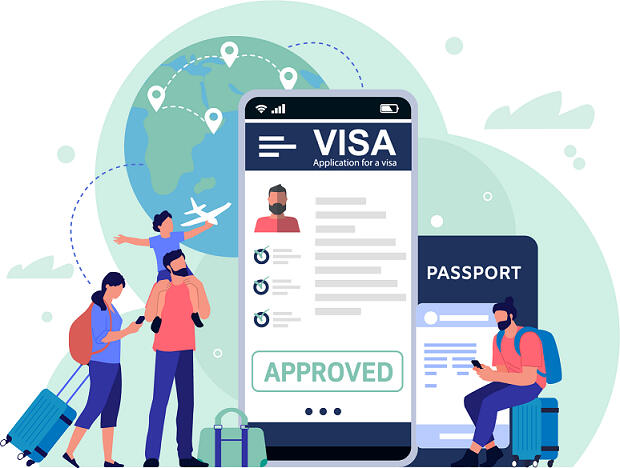
Receiving a Decision
If your Fiance Visa application is approved, you will be permitted to remain in the UK for up to six months. You must get married within the 6-month period of your Fiance Visa and you must abide by the conditions imposed on your immigration permission.If you are travelling from outside of the UK, you will need to report to border control when you arrive. It is important to bring photocopies of key documents and information from your application with you when you travel to the UK.If you are granted with a Fiance Visa, it is expected that you will make the UK your new home. This requires you to switch to a different form of long-term immigration permission when your visa expires.In most circumstances, you will not be able to apply for a Fiance Visa extension. However, if there were exceptional circumstances which prevented you from getting married within the initial 6-month period, at the discretion of the Home Office, you might be granted an extension.The same requirements will need to be fulfilled to be eligible to apply for the extension and your circumstances must not have changed significantly.
How Do I Switch to the Spouse Visa?
One of the main benefits of the Fiance Visa is that it offers a smooth transition to the highly sought-after Spouse Visa. You will need to go through the standard Spouse Visa application process, but you will not need to leave the UK to apply for it (provided you apply before your Fiance Visa expires).You can stay in the UK for 30 months under a Spouse Visa and you will be able to apply for a Spouse Visa extension when your original Spouse Visa expires, provided your circumstances haven’t changed. The Spouse Visa extension also lasts for 30 months.You can work in the UK and study as a Spouse Visa holder and all time spent in the UK under this visa counts towards minimum residency requirements for Indefinite Leave to Remain (ILR) and British citizenship.After you have spent 5 years living in the UK under a Spouse Visa, you can apply for Indefinite Leave to Remain status, which is a form of permanent residence, meaning you can remain in the UK without any restrictions.After you have lived in the UK for a year under ILR, you will be eligible to apply for full British citizenship. As a British citizen, you can apply for a British passport and enjoy the full benefits of being a British citizen.
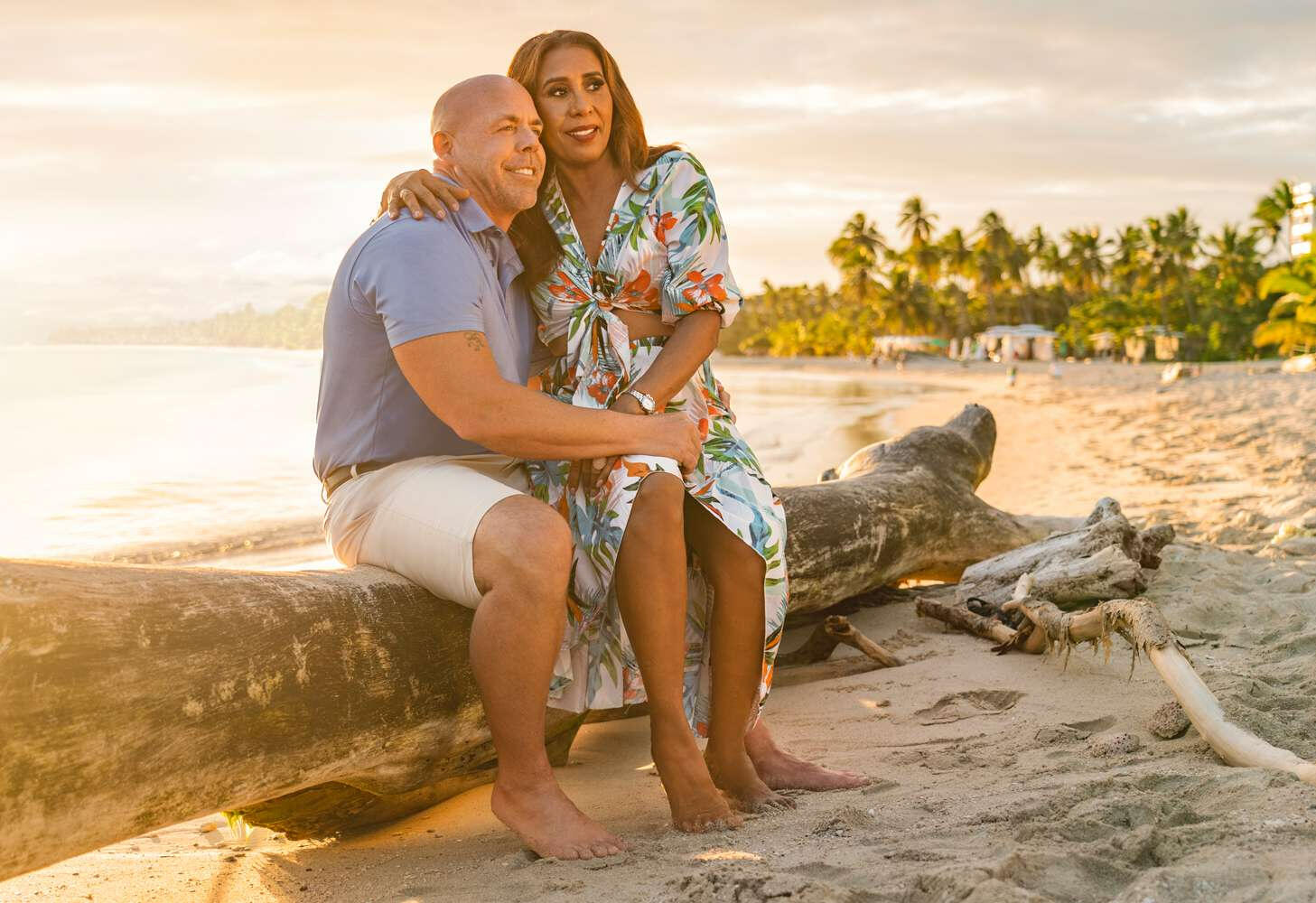
Fiancé Visa appeal process
To lodge a Fiancé Visa appeal, it is recommended that you follow the below steps:-Read your refusal letter carefully to understand the reasons why your application was refused
-Identify whether you have the right to appeal the decision (this will be clearly stated in your letter)
-You must submit your appeal within 14 or 28 days (depending on whether you applied outside or inside the UK)
-Prepare your case to demonstrate why the decision should be reversed
-Attend the hearing at the First-tier Tribunal in the UK immigration courts
-Wait for a decision on your appeal
What is the UK Fiancé Visa appeal process time?There is no set time for visa appeals to be processed. Some may be decided within one month, while others may have to wait for over 12 months.Approximately 50% of immigration decisions are overturned on appeal, and recent figures showed that the Home Office loses 75% of immigration appeals.This means that there is a high chance that you will be successful if you submit a strong appeal against your initial decision.Overstaying on a cancelled Spouse Visa can have dire consequences in the long run, including being convicted of immigration fraud, immediate deportation and being barred from reapplying to the UK.
Are you looking for information about the Fiance Visa? Get in touch now for expert advice.
Prohibited Degree of Relationship Requirement
To qualify for a Fiance visa, you and your fiance must not be related in any of the following ways. Your partner must not be your:-Adopted child
-Adoptive guardian
-Offspring
-Formerly adopted child
-Former adoptive guardian
-Grandmother or grandfather
-Grandson or granddaughter
-Biological parent
-Maternal or paternal aunt or uncle
-Brother or sister
-Daughter or son of a sibling
-Half-sibling
Previous Relationships
In order to qualify for the fiance visa, you or your partner must not be married or in another relationship with a third party at the time of your application. If you or your partner have been married previously, you must give genuine proof that your previous marriage has been terminated through divorce (which must have been done officially through the courts) or widowed.If you were not previously married but in a civil partnership, you must prove that your relationship was over before you applied for the fiance visa.
Frequently Asked Questions
Unmarried Partner Visa UK
The UK government recently announced a change to the minimum income requirements from £18,600 to £38,700. This comes into effect in April 2024 and affects three-quarters of Brits. Get in touch with us now for advice or support.If you wish to apply for an Unmarried Partner Visa, our immigration lawyers can help you and your beloved one settle in the UK.Call us on 020 7183 1734 for immediate help & assistance with your situation. We’re here to help you in person, via the phone or online.
Request a call back from our immigration experts
Unmarried Partner Visa
Also, commonly known as the UK de facto visa, the unmarried partner route applies the same requirements and benefits to couples in both heterosexual and homosexual relationships – provided that you can demonstrate with evidence that you have been in a committed and serious relationship for two years or longer.The UK unmarried partner visa technically falls under the family visa category, which applies to unmarried couples but also children, parents, and a spouse or civil partner. Under Article 8 of the European Convention on Human Rights, non-EEA and non-Swiss nationals have the right to legally seek to travel to the UK with the intention of staying and living with their partner.With V&I Advice, your chances of a successful application for an Unmarried Partner Visa will be maximised. Get in touch with the team today on 020 7183 1734 or use our online contact form to discuss your application.
Page Contents
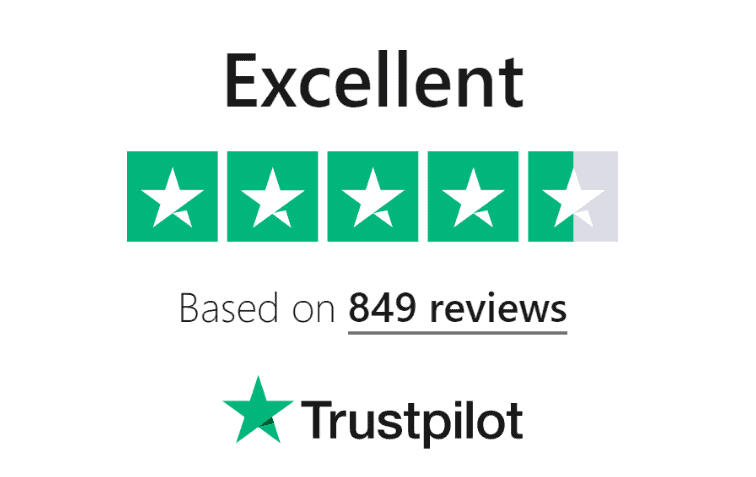
What Is The UK Unmarried Partner Visa?
The Unmarried Partner Visa allows foreign non-EEA nationals to enter or remain in the UK in order to live with their British partner. This is allowed on the basis that they are in a provably genuine, committed and long-term relationship with a British national – or a person who is currently present and settled in the UK, possibly with Indefinite Leave to Remain. In any case, it’s crucial that the UK-based partner is living and remaining in the UK without immigration restrictions. This can include:-Full British citizens.
-Someone who is present and settled in the UK with Indefinite Leave to Remain.
-A person currently staying in the UK under humanitarian protection or with refugee status.The unmarried partner visa comes with a few requirements that you’ll have to meet in order to successfully apply and be approved. Alongside the fact that you must prove that you have been in a genuine relationship for at least two years at the time of applying for the unmarried partner visa, it’s also necessary that both the non-EEA applicant and the UK-based sponsoring partner are both 18 years old or older. You must also both fully intend on living together in the UK on a permanent and long-term basis. To this end, you’ll need to prove that you both have sufficient and appropriate accommodation plans and living arrangements for when the non-EEA applicant reaches the UK.The length of the unmarried partner visa validity changes depending on where exactly you have applied from. For example, if foreign national unmarried partners are already in the UK and is applying for the visa in order to earn the right to stay in the country, the visa is issued for a period of 30 months. If the non-EEA applicant is submitting their application while abroad, however, whether in their home country or anywhere else, then upon success they will receive an unmarried partner visa valid for a period of 33 months.For couples who don’t intend to get married or simply want to get married later in life after spending time living in the UK together, the unmarried partner route is the most suitable and appropriate visa available.Here at the Visa & Immigration Advice, we always recommend that anyone intending to submit an unmarried partner visa application seeks professional legal advice on the matter. The Home Office will expect comprehensive and thorough evidence of your life and relationship together being genuine and honest – a lot of unmarried partner visa applications are rejected because they simply don’t include enough evidence of the relationship in question.Our experienced and OISC-qualified immigration lawyers can help to provide the advice and assistance you need to make the right decision and submit an application with the best chances for success. Just get in touch with the helpful and expert team here at V&I Advice today to discover more about how we can help you achieve success through the unmarried partner visa route.
Unmarried Partner Visa Requirements
In order to be considered an eligible and appropriate candidate for the unmarried partner visa category of family visas, you’ll need to not only meet but also prove that you satisfy all the requirements set in place by the Home Office and UKVI (UK visas and immigration). These eligibility requirements include meeting the following criteria:-You must be able to demonstrate and prove that any previous relationships have ended. This includes any relationship that either the non-EEA applicant or the UK-based sponsor were involved in, whether previous marriages or unmarried, have ended. The Home Office will not grant an unmarried partner visa to a couple still engaged in previous marital or other relations.
-Both the applicant and the sponsor must both be over the age of 18 at the time of applying for the unmarried partner visa.
-The UK-based sponsor must be able to show that they have either full British citizenship, Indefinite Leave to Remain, or humanitarian protection in the UK. Unmarried partner visas cannot be awarded to the partners of people subject to UK immigration restrictions.
-You need to be able to show that you have not only met physically and been in a relationship for the last two years but that you have also been living together for at least two years at the time of applying. This demonstrates that you have been in a genuine and subsisting relationship akin to marriage or a civil partnership. This cohabitation requirement is absolutely mandatory for every unmarried partner visa applicant. You’ll need to be able to provide documentary evidence of this.
-You’ll need to convince the Home Office and UK visas and immigration that your relationship is entirely genuine and that both the non-EEA applicant and the UK-based sponsor intend to live together in the UK on a permanent basis. This part of the application requires comprehensive and substantial evidence.
-There must be suitable and adequate accommodation available for the couple and any necessary dependents. It’s important for you to be able to prove to the Home Office and UKVI that the UK-based sponsor, the non-EEA applicant, and any dependents also coming to the UK have the suitable accommodation necessary to support an acceptable quality of life.
-As part of the unmarried partner visa applications, the adult non-EEA applicant will need to demonstrate that they are able to speak and understand English to the required level. These English language requirements could mean presenting evidence of your ability to understand English or submitting proof requested by the Home Office, such as completing an English language test. You may be considered exempt from this if you have proficiency in another British language, such as Welsh or Scottish Gaelic.
-You and your partner must be able to fully support yourselves in the UK without needing to claim public funds. To this end, the unmarried partner UK visa type comes with certain financial requirements for gross annual income that you must be able to prove before being eligible for the visa. The financial requirements fall upon the UK-based settled person, not the non-European nationals coming to the UK.
What Are The Financial Requirements For An Unmarried UK Partner Visa?
When applying for the unmarried partner visa, it’s important to prove that you will be able to fully support yourselves while living in the UK without needing to access public funds, as per UK immigration rules.To do this, the person living in the UK with settled status needs to be able to meet the specific financial requirement of a minimum income threshold before their partner can join them in the UK (unless the partner is already living and earning in the UK).You won’t need to meet this minimum financial requirement if you are in the UK with humanitarian protection or have refugee status.However, if you do need to meet the financial requirement, you’ll need to prove your gross annual income (before tax) meets the amount necessary, depending on who you’re applying for:-£18,600 – This is the minimum threshold you must meet when applying for an unmarried partner to join you in the UK. If you are planning on bringing a partner with no dependent children to the UK, this is the necessary amount you must meet.Plus, you also need to prove that you have additional funds for every dependent child coming to live with you in the UK if this child is not British, a European national, or possessing settled status:-£3,800 – This is the additional amount you need to prove that you have for the first dependent child coming to settle in the UK with you.
-£2,400 – This is the amount necessary for every additional dependent child after the first.
How To Meet The Visa Financial Requirements?
You can meet the Unmarried Partner visa financial income requirement through both salaried and non-salaried income in a variety of different ways. You can reach the threshold using income from a combination of different sources, such as:_Cash savings – It’s possible to count personal cash savings of £16,000 or higher towards the minimum income threshold for the foreign national unmarried partners visa. If your income fails to meet the £18,600 minimum financial requirement, then you can instead use your savings. Your savings not only have to be at least £16,000 at least but also have to include an additional £2.50 for every £1 that your income is below the minimum given threshold. You need to have had these savings for at least six months, and it is possible to use the savings of the non-EEA applicant towards this amount.
-Property rental income – Non-work income is also viable, such as if you own properties and have a regular source of income via rental of these properties. While you can’t use the sale value of any property towards meeting the financial requirement, earnings made through rent can be considered viable income.
-Employed or self-employed income – Any income you make from employed or self-employed work can be used towards your income requirement – as long as you currently have settled status in the UK and are earning the money in the country. You can use your income before National Insurance and tax. You can also use self-employed income, such as if you are a director of a UK-based company. It’s worth noting that you need to have been earning the given wage for at least six months or longer.
-Trust funds – If you are in the possession of a trust fund, then you can use this amount in order to help reach the minimum financial requirement for the unmarried partner UK visa. This counts as a non-salaried income but is viable to be counted towards your annual gross income when applying for the visa.
-Maternity, paternity, adoptions, or sick pay – If you have had your annual earnings altered out of necessity, such as going on maternity or paternity leave, taking sick pay, or anything else, then you will be able to use these payments towards meeting the minimum financial requirement for the unmarried partner visa.
-Pension – If the settled person in the UK is currently on their pension, then this income can be counted towards the financial requirement for the unmarried visa UK instead. This counts as non-employment earnings and is most often counted instead of employed or self-employed income.
Get in touch with our lawyers to find out how we can help with your Unmarried Partner Visa application.
How Long Does The Unmarried Visa Last For?
The duration that the unmarried UK partner visa is valid depends on where you are applying from. For instance, if applying from overseas, the visa will be issued for a period of 33 months. However, if you are making the application from within the UK itself, then the visa will be issued for a period of 30 months instead.For a lot of people coming to the UK with the intention of remaining and living with their British national long-term partner, the unmarried visa is the first step in an immigration route that often results in the non-EEA foreign national applying for Indefinite Leave to Remain. However, successfully applying for ILR (Indefinite Leave to Remain) requires that non-European nationals stay within the UK as the unmarried partner of a UK citizen for at least five years. The 30 or 33 months of the initial visa’s validity do not cover this. However, a visa extension of an additional 30 months before reaching the visa expiration date can take you to the five-year mark.
Can The Unmarried Partner Visa UK Be Extended?
As is often the case, an unmarried partner of a UK citizen might reach their visa expiration date but wish to remain in the UK with their long-term partner. Fortunately, it’s possible to apply for a further extension of an additional 30 months while in the UK, on top of the initial 30 or 33 months of the visa’s validity.Before your initial grant of leave expires, you can apply to UKVI (UK visas and immigration) to extend your stay. You’ll need to meet all the same maintenance and financial requirements as before, and you must still be living with the settled partners you came to the UK to live with.For a lot of couples, the unmarried partner visa is the first step in the immigration route towards Indefinite Leave to Remain and permanently settling in the UK together. With an extension of 30 months on top of the initial 30 or 33 months granted, you will eventually reach the five-year mark, after which you will be eligible to apply for (Indefinite Leave to Remain).
How Do I Apply For An Unmarried Partner Visa?
When you’re putting together an application for the unmarried partner visa, you’ll need to fill in an online form through the Home Office application website. Here, you’ll also be able to submit your various supporting documents at the same time.To complete the Unmarried Partner visa application process, you will also need to attend a physical appointment at which your biometric information will be taken, such as fingerprints and a photo. If your non-EEA national partner is applying from outside the UK, you can expect a decision within around 12 weeks – this is reduced to around 8 weeks for applications made within the UK.If your application for the unmarried UK partner visa is approved, you’ll be granted a visa with permission to visit and stay in the UK for two and a half years. You can then apply to extend this period or have your status changed to a different visa category.Once your partner has spent five years or longer in the UK, they’ll be eligible to apply for Indefinite Leave to Remain (ILR). This will likely also require passing an English language test and a test about their understanding of UK tradition, customs, culture and law.
How Long Is The Visa Processing Time?
UKVI (UK visas and immigration) boasts the impressive claim of processing around 95% of all UK unmarried partner visa applications within 12 weeks of them being submitted. As such, you can generally expect for your own application to be processed and to receive a decision in that kind of timeframe.If, however, you are in need of having your Unmarried Partner visa be processed in less time, then you might need to use a settlement priority visa service. Most visa application centres outside the UK offer this service, which ensures that your visa application will go straight to the front of the queue along every stage of the visa processing and decision-making. Generally speaking, visa applicants using the settlement priority visa service can expect their application to be processed within 30 working days.If you are applying from within the UK and you would like to either change your immigration status by switching to the unmarried partner visa or you would like to extend your stay under the visa, then there are a couple of potential avenues for you to take. Applying via the standard service will often result in a decision within 8 weeks. However, making use of the UK’s super priority service often means that you’ll receive a decision within a day of submitting your biometric information for the visa.
How Much Does The Unmarried Partner Visa Cost?
The Home Office application fee for the unmarried partner visa depends on how you apply and where you apply from. For example, the Home Office processing fee for applications made from outside the UK is currently £1,538, while the Home Office application fee for unmarried visa applications made within the UK is currently £1,048 – this applies for applications made to switch into the unmarried partner category of visa, as well as to apply for an extension to an existing visa ahead of the expiration date.The fee to add dependents to your application is the same as the visa fee to apply in the first place. So, for example, applying from outside the UK to bring a dependent with you is an additional £1,538, and to apply from within the UK to bring a dependent with you is an additional £1,048.
Can I Bring Dependents With Me On An Unmarried Partner Visa?
Yes, anyone applying for the UK unmarried partner visa can also apply to bring dependents with them when they travel.However, there are a few things that you need to be aware of when it comes to the fees and the financial requirements for bringing dependents with you.If you have any children under the age of 18, you can apply for them to enter the UK with you as your dependents.This application for your dependents should always be made at the same time as you make your initial application for your own unmarried UK partner visa.
Unmarried partner visa refusal and appeals
You may have the right to appeal the decision not to grant you an Unmarried Partner Visa. However, going through the Unmarried Partner Visa appeals process can be complex and confusing.Below is a step-by-step guide on how to appeal an Unmarried Partner Visa refusal:1. Identify the time limit for submitting your request for an appeal or review (14 days if you applied in the UK, or 28 days if you applied outside the UK)
2. Apply for an appeal to the First-Tier Tribunal within the specific deadline
3. Work with an immigration solicitor to prepare your case, any relevant supporting documents, and the reason(s) why your application should be accepted
4. Attend the hearing
5. Await the decision
6. If you receive an unsuccessful decision at this point, you may be eligible to apply to the Upper Tribunal (within 14 days)The best way to avoid the Unmarried Partner Visa appeals process is to submit the strongest possible application the first time.Give yourself the best chance of a successful application by working with a firm of experienced immigration solicitors.

Get in touch with our lawyers to find out how we can help with your Unmarried Partner Visa application.
Frequently Asked Questions
UK Civil Partnership Visa
The Civil Partnership visa allows those in civil partnerships with British citizens or residents to come and join them in the UK.Call us on 020 7183 1734 for immediate help & assistance with your situation. We’re here to help you in person, via the phone or online.
Request a call back from our immigration experts
Overview of the Civil Partnership Visa
The Civil Partnership visa (or UK Civil Partner visa) is a type of UK Family visa, similar to the Spouse visa and Unmarried Partner visa.Like these visas, it allows foreign nationals the opportunity to settle in the UK with their British or Irish partners, with a view to eventually applying for permanent settlement through indefinite leave to remain.These visas share a great deal of similarities, including what you need to do to become eligible, and what it allows you to do while in the UK.However, the Civil Partnership visa is specifically aimed at couples who are in a legally binding civil partnership, rather than a marriage or any other form of relationship.Civil Partnership visas allow you to stay in the UK for an initial 2 years and 9 months. This can then be extended for another 2 years and 6 months.
Page Contents
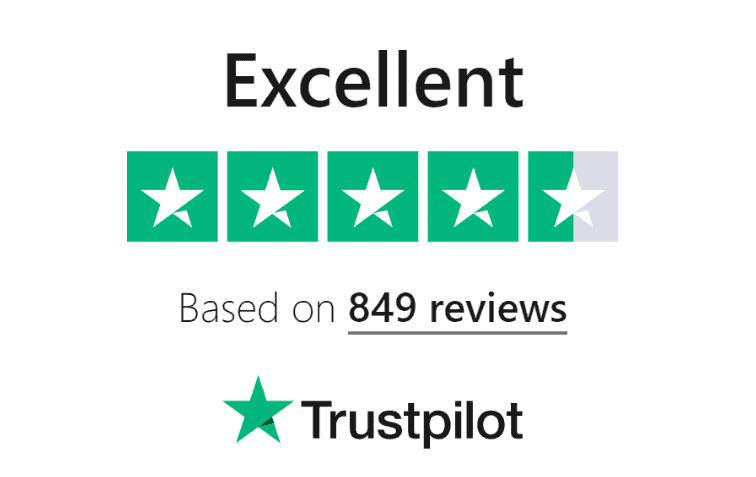
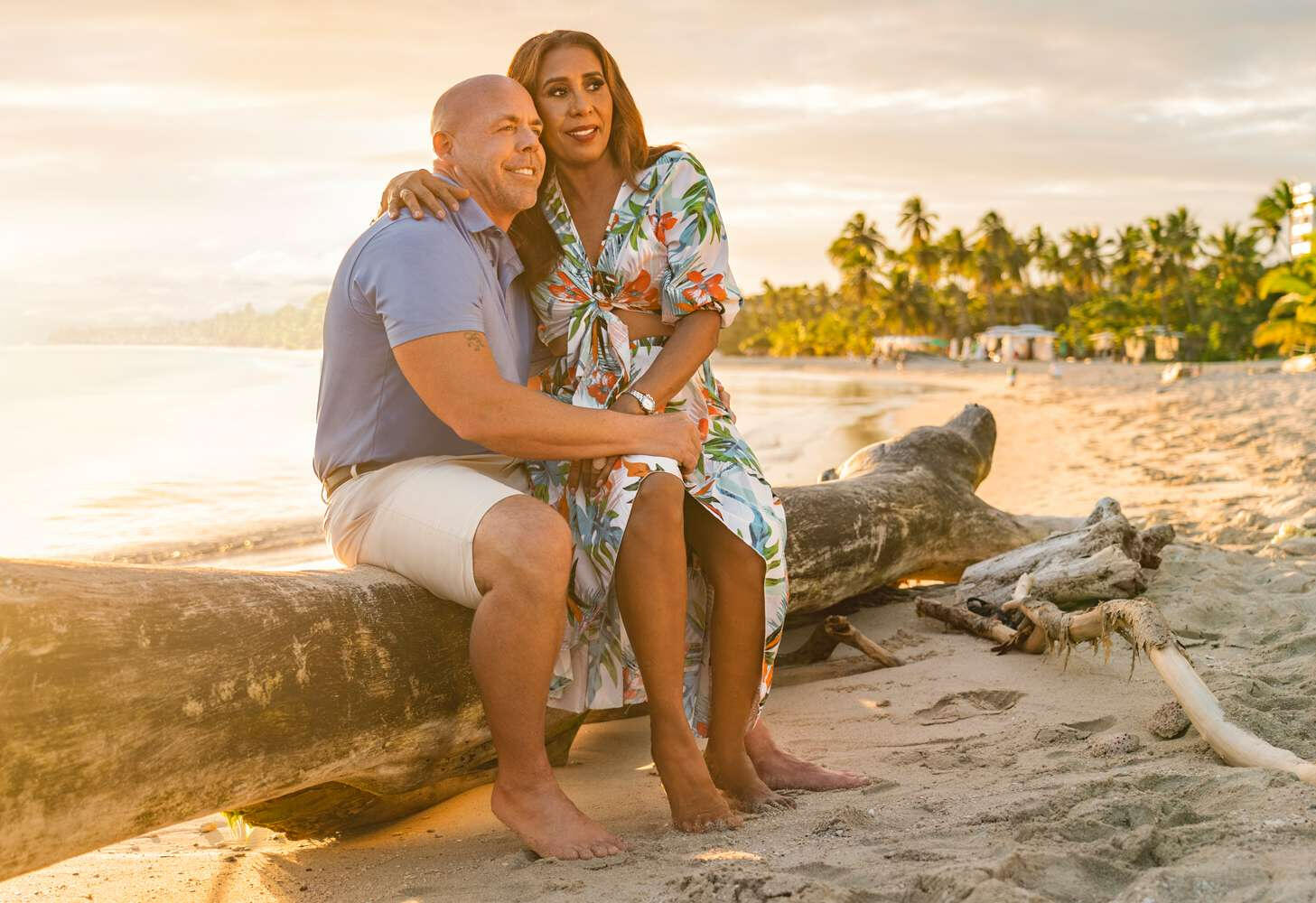
Who Can Apply for a Civil Partnership Visa?
You will only be able to apply for a Civil Partnership visa if your civil partner:-Is a British citizen or Irish citizen
-Has settled status in the UK, such as indefinite leave to remain, settled status under the EU Settlement Scheme or proof of permanent residence
-Has pre-settled status through the EU Settlement Scheme (as long as they started living in the UK before 1 January 2021)
-Has a Turkish Businessperson visa or Turkish Worker visa
-Has refugee status or humanitarian protection in the UKIn addition, you will need to fulfil the following criteria:-You’re in a civil partnership that is legally recognised in the UK
-You and your civil partner are both over 18
-Your relationship must be genuine and subsisting
-Any previous relationships must have broken down permanently
-You must have adequate accommodation in the UK available to you and intend to live with your civil partner permanently
-You must meet the minimum financial requirements
-You must meet the minimum language requirements
What Are the Relationship Requirements for a Civil Partnership Visa?
The most important part of fulfilling the relationship requirement for this visa is proving that you are in a valid, legally binding civil partnership.This can be done by providing proof of a civil partnership certificate that is legally recognised in the UK.However, UK Visas and Immigration (UKVI) will also need to see that your relationship is genuine and subsisting. This means that your relationship with your civil partner must be truthful, lasting and not exist solely for deceitful reasons.This is in place to ensure that people do not simply enter into a civil partnership to bypass UK immigration rules.
There are a number of ways you can prove that your civil partnership is genuine and subsisting, most of which involve providing a range of proof and evidence taken from the history of your relationship with your civil partner.with you is an additional £1,048.
How Can I Prove That My Relationship is Genuine?
In order to be approved for a Civil Partnership visa, you must demonstrate to the Home Office and UKVI that your civil partnership is genuine and subsisting.You may do this by providing a range of documents with your visa application, which may include (but not be limited to) the following:-Evidence that you live together, such as shared utility bills or a tenancy agreement
-Evidence that you share financial responsibilities together, such as joint bank accounts or utility bills
-Evidence that you both play a part in raising your children, if you have any
-Evidence that you have visited each other’s home countries
-Photographs, text messages, personal letters, details of travel taken together, and other informal pieces of evidence or correspondenceYou must also provide proof that any previous relationships, such as previous marriages or civil partnerships, have broken down completely.You can do this by providing evidence of a divorce or evidence of dissolution in the case of a civil partnership.
What Are the Financial Requirements?
You and your civil partner must demonstrate that you have a certain amount of shared income in order to be eligible for a Civil Partnership visa.In most cases, this will be £18,600.If you have a dependent child you wish to add to your visa application, you will have to earn another £3,800 a year in order to accommodate them.Each additional child after that will add another £2,400 to the yearly requirement.However, you will not have to add on these additional costs if your child or children are British or Irish citizens, have indefinite leave to remain, or have settled or pre-settled status.You may use any of the following to make up the minimum income requirement for your Civil Partnership visa:-UK-based income from employment before tax and National Insurance
-Income earned from self-employment or as a director of a limited company in the UK
-Cash savings above £16,000
-Money from a pension
-Non-work income, such as that from property rentals or dividendsNote that you may be exempt from having to fulfil the financial requirement if your civil partner is in receipt of certain state benefits.
How Can I Prove I Meet the Financial Requirements?
You may need to provide a range of documents in order to prove that you meet the minimum financial requirements.These may include (but not be limited to) the following:-Bank statements showing you or your civil partner’s income
-Six months of payslips
-A letter from an employer, which is dated and on headed paper, confirming:
-That you or your civil partner are employed there
-The job title or position you or your civil partner hold
-How long you or your civil partner have worked there
-The type of contract the job is, such as permanent, fixed term, etc
-What you or your civil partner earn before tax and National Insurance
-How long you or your civil partner have been paid your current salary
-That the payslips are genuineDemonstrating that you meet the financial requirements is necessary in order to become eligible for indefinite leave to remain (ILR) after 5 years.However, if you’re unable to meet the financial requirements when you first apply for your Civil Partnership visa, you may still be eligible if you’re put on a 10 year route to ILR instead of the usual 5 year route.You must also provide proof that any previous relationships, such as previous marriages or civil partnerships, have broken down completely.You can do this by providing evidence of a divorce or evidence of dissolution in the case of a civil partnership.
Get in touch with our immigration experts for assistance with your Civil Partnership visa application today.
What Are the Accommodation Requirements?
When applying for a Civil Partnership visa, you must demonstrate to the Home Office that you will have somewhere adequate to stay while in the UK that fits within the set guidelines.This is in order to ensure that you will not have to seek out access to public funds during your stay in the UK.In order for your Civil Partnership visa to be approved, the accommodation you’ll be staying in in the UK must:-Be owned or occupied exclusively by you and your family
-Have been obtained without recourse to public funds
-Not exceed the overcrowding guidelines
-Not breach public health regulationsYou can satisfy this requirement by submitting:-Proof that you and your civil partner have sole ownership of a property, such as through a title deed or mortgage agreement
-Proof that you and your civil partner have legal occupancy in a property, such as through a tenancy agreement
-A letter from a friend or family confirming that you will be staying with them and that they will be providing you with adequate accommodation for the whole of your stay in the UK
What Are the English Language Requirements?
In many cases, you will have to demonstrate your English language skills in order to be eligible for a Civil Partnership visa.You won’t need to prove your English language skills or take an English language test if any of the following apply to you:-You are over 65
-You are from a majority English-speaking country
-You have a degree or an academic qualification that was taught or researched in English
-If this applies to you, you will need to apply for a certificate from Ecctis to demonstrate that your qualification is equivalent to a UK bachelor’s degree or higher and that it was taught in English
-You have a degree or an academic qualification from a UK college or university
-You have a physical or mental condition that prevents you from meeting the language requirementIf none of the above apply to you, you will need to take an approved English language test and pass at A1 level or higher on the Common European Framework of Reference for Languages (CEFR).Note that this minimum language requirement will increase after you’ve been in the UK for 2.5 years. At this point, you will need to pass an approved English test at A2 or higher in order to extend your visa and continue living in the UK.However, if you pass your test result at A2 or higher when first applying for your visa, you will be able to use this test result again when you extend it as long as the test provider hasn’t withdrawn the result.
How Do I Apply for a Civil Partnership Visa?
You must apply for your Civil Partnership visa online.You must also apply for it before you travel to the UK, as you will only be granted entry clearance to the UK when your application for a visa is approved.As part of the application process, you will be asked to fill in the application form and upload all of your supporting documents. You must ensure that you fill in the form as accurately and fully as possible, as not doing so may risk your visa application being refused.You will also have to pay your fees at the same time when submitting your application.After submitting your application, you may also have to attend an appointment at a local visa application centre in order to give your biometrics information in the form of your fingerprints and a photograph.
What Documents Do I Need to Provide With My Application?
You will need to provide the following supporting documents an information with your Civil Partnership application:-Your current passport or other valid travel ID
-Copies of the photo page and any visa or entry stamps in your previous passports
-Details of any previous immigration applications you’ve made
-Details of any criminal convictions
-Your parents’ dates of birth and nationalities
-Your tuberculosis test results if you’re from a country where you’re required to take one
-Documentary proof that your relationship is genuine and subsisting
-Documentary proof that you meet the minimum financial requirements
-Documentary proof that you meet the minimum language requirements, or proof that you’re exempt from themNote that you will also need to provide a certified translation of any document that is not in English or Welsh.
For assistance with your Civil Partnership visa application, contact us today.
What Are the Fees for the Civil Partnership Visa?
It costs £1,538 to apply for a Civil Partnership visa.It will cost another £1,538 for each dependent child you add to your application, if you have any.You will also have to pay the immigration health surcharge when you apply for a Civil Partnership visa. This is £624 a year for adults, and £470 a year for under 18s.Note that you may also have to pay additional fees for the following:-Obtaining a biometric residence permit
-Getting certified translations for documents
-Getting an English language test
-Getting your academic qualification certified by Ecctis
-Using the super priority visa service
What Are the Processing Times for the Civil Partnership Visa?
Your application for a Civil Partnership visa will usually take up to 24 weeks to process from the date when you attend your appointment at the visa application centre.However, note that this may take slightly longer if any of the following apply:-UKVI are experiencing a particularly high case load
-You are asked to provide additional information or supporting documents while your application is being processed
-Your immigration case is a complex one, or there are additional concerns in regards to establishing your eligibility for a visaIf you need your visa processed quicker than usual, you may be able to use the Home Office’s super priority processing service.This costs £800 and ensures that your application is processed within one or two working days, depending on when your biometrics appointment is.
How Long is the Civil Partnership Visa Valid For?
When you are initially granted leave to remain for your Civil Partnership visa, you will be allowed to stay in the UK for 33 months, which is 2 years and 9 months.When this initial period is close to expiring, you will then be able to extend your visa for another 30 months, which is 2 years and 6 months
What Can I Do With a Civil Partnership Visa?
With a Civil Partnership visa, you will be able to live, work and study in the UK with almost no restrictions.You will also be able to travel freely to and from the UK without being subject to immigration control.You will not, however, have recourse to public funds.This means that you will not be able to access many state benefits available in the UK for those who have citizenship or permanent settlement.You will only be able to access public funds once you successfully apply for indefinite leave to remain.
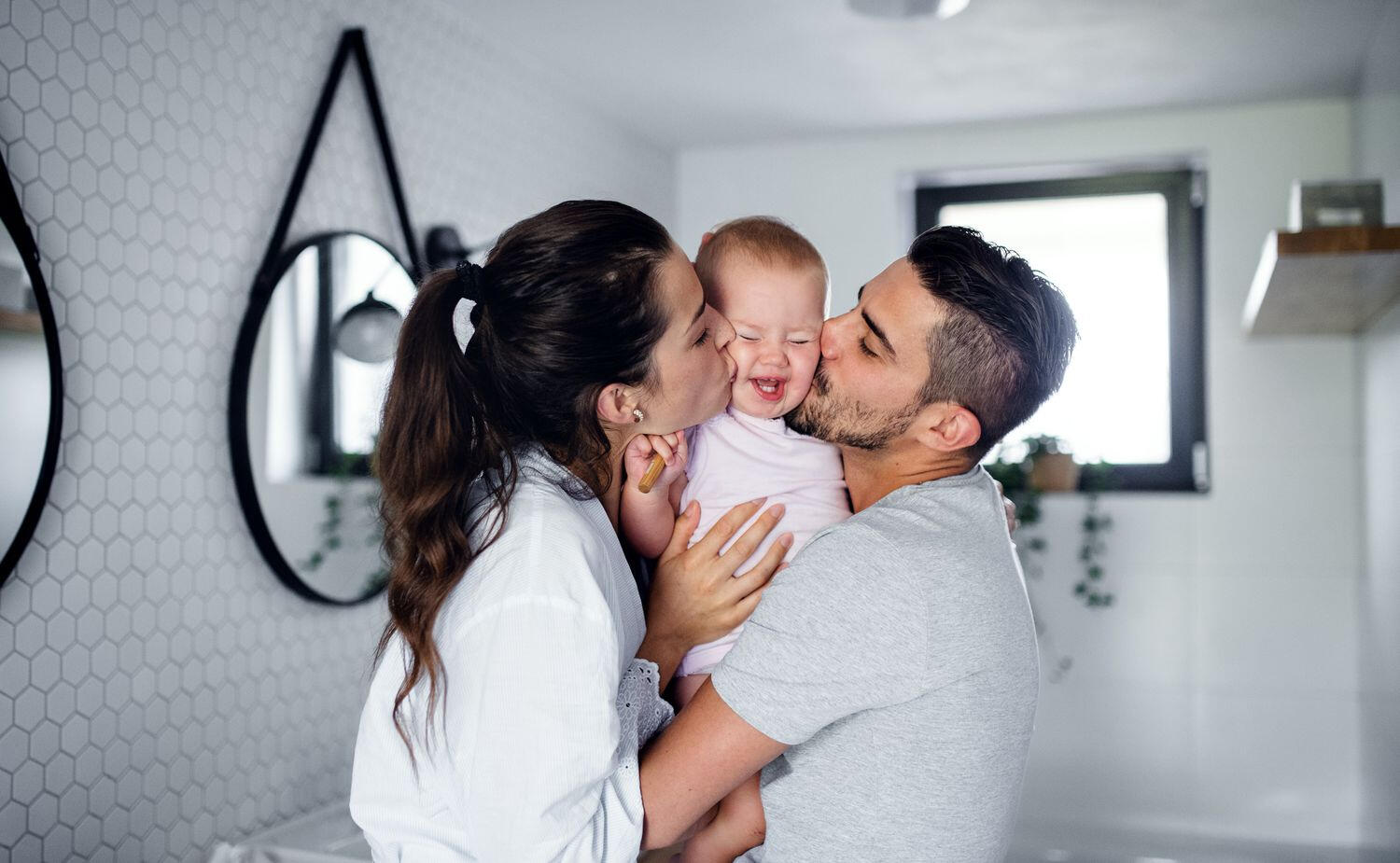
How Can V&I Advice Help?
Applying for a Civil Partnership visa can be a fairly long and drawn-out process, given the amount of eligibility criteria you need to fulfil and supporting documentation you need to provide.If you require any assistance with your Civil Partnership visa, such as if you’re confused or unsure about the application process and what you need to do to be eligible for this visa, we can help.We are a team of professional and knowledgeable immigration lawyers who have years’ worth of experience working in UK immigration law. We have helped countless people overcome hurdles to come and settle in the UK, and we can help you to do the same, too.Whether you need expert advice on how to prove that you meet the Civil Partnership visa requirements, help with assembling your supporting documents, or support if your visa application has been rejected, we can be there for you to help guide you through the process.For more information about the services we offer and what we could do for you, reach out to one of our immigration advisers on 020 7183 1734, or contact us online today.
Frequently Asked Questions
N
F
F
F
F
FFfF
F
F
F
UK Visitor Visa
If you are a foreign national and you wish to spend some time in the UK as a tourist or to visit your family and your friends, you can apply for a Visitor Visa.Call us on 020 7183 1734 for immediate help & assistance with your situation. We’re here to help you in person, via the phone or online.
Request a call back from our immigration experts
Visitor Visa UK
If you’re looking to make a short term stay in the UK, then the standard visitor visa (UK) is likely the visa you’ll need to apply for. Visitor visas in the UK allow you to travel for short term stays of up to six months and can be used for leisure and business, among other reasons.The visitor visa can act as a short term business visa, a tourist visa for UK holidays, an academic visit visa, a marriage visitor visa to get married or enter into civil partnership, and much more. If you’re coming to the UK for travel, tourism, leisure, short term business needs, or private medical treatment, then the standard visit visa (UK) will give you permission to come to the UK to do so.
Page Contents
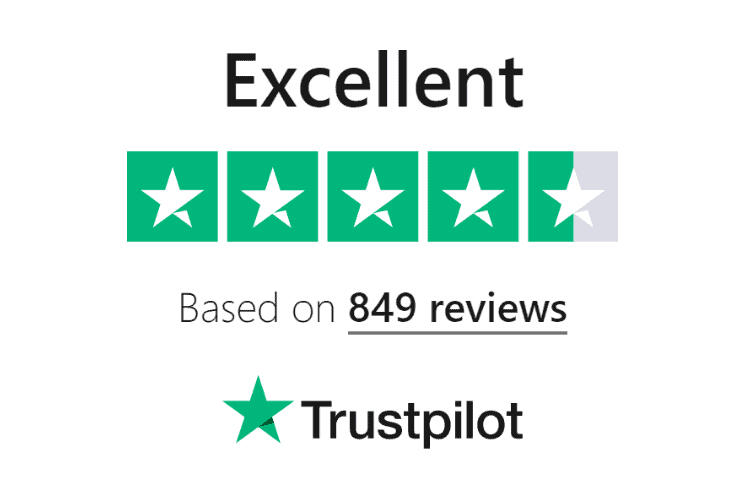
What Is The UK Standard Visitor Visa And Who Is It For?
-Leisure – Are you a non-EEA national looking for a holiday visa? UK visas for international travellers can sometimes become confusing, but the standard visiting visa to UK territories will cover you for up to six months for any leisure purposes. Whether coming for a family visit, sightseeing, or general travel, your needs fall under the standard visa because it functions as a UK general visitor visa and UK tourist visa. To UK holidayers from non-EEA regions, the standard visitor visa is the path to take.
-Business – If you need to enter the UK for short term business requirements such as conferences, events or business appointments, then the general visitor visa UK will allow you to travel to the UK to conduct your business here for a period of up to six months.
-Other reason – The standard visitor visa can also allow you to travel to the UK if you are receiving private medical treatment, for instance.If you’re not a citizen of either an EEA country or Switzerland, you may well need to go through the online application form process on the gov.uk website in order to get a standard visa. UK visa eligibility can be confusing , however, and there are exceptions.

What Documentation Do I Need To Prove My Eligibility For The Visitor Visa?
To prove your eligibility for the UK visitor visa, it’s important to provide the Home Office with evidence of the general requirements for eligibility as part of your UK visit visa requirements and application. As a non-EEA visa national, you’ll need to prove that:-You have full intention to leave the UK at the end of your visit and do not plan to stay for longer than six months.
-You have evidence of any activities you intend to perform while in the UK, including business and other activities.
-You can afford your inward and outward journey including flights.
-You have access to sufficient funds in order to support and house yourself and any dependents throughout your stay without accessing public funds.It’s one thing knowing what you need to prove, but it’s another thing understanding how to do so. Immigration rules are strict and the Home Office refuses a lot of visas on the basis of a lack of supporting evidence. Here at V&I Advice, it’s our job to support you in understanding what you need to do to submit a successful application and how to go about it. Visit visa requirements for UK travel can be confusing, but we’re always on hand to provide guidance and assistance when you need it.To have your visa approved, you’ll need to give details about your current and previous passport numbers or an alternative valid travel identification. Remember, however, that any documentation needs to be accompanied with a certified translation if it isn’t in English or Welsh. Additional documents you might need to provide includes:Travel documents that detail the dates on which you plan to travel.
An immigration record and history of international travel. Visa UK laws require a lot of information to be provided.
An estimate for the cost of your visit as well proof of sufficient funds such as bank statements.
Your overseas contact details and address.
Details of any overseas employer company for which you are travelling to the UK.The list continues, and the truth is that there’s no limit to the amount of supporting evidence that can help prove your eligibility and support your case. If you feel a little overwhelmed and want some support in putting your application together, get in touch with the team here. Our immigration lawyers are well-experienced and fully-qualified – no one is better placed to help guide you to visa approval.
How Long Should I Expect The Visa Processing Time To Take?
When planning a trip, it’s important to know what kind of timeframe you can work from. Whether you’re travelling to the UK for business or tourism from somewhere like North America, Asia, Australia, the Middle East or Africa, you want to know that your plans aren’t going to be held up while you wait for permission to travel.You can submit your visa application to the Home Office between three months and 48 hours before you plan to travel.However, the visa processing time can take often take up to three weeks for applicants outside the EEA and Switzerland. You can take steps to track the application processing period and view your UK visa processing status as it changes. It can be a huge relief to be able to frequently check your visa status. UK processing times are generally quick, but it’s good to keep on top of the ways things progress.Whether you’re applying from a local visa centre or embassy, or applying via the online forms, you might find yourself in a situation where you need to have your visa approved as soon as possible.If you’re travelling to the UK for an urgent appointment that you can’t afford to miss, you might want to choose one of the Home Office’s priority services: the Priority Service and the Super Priority Service. These ensure that your application is processed within five working days and 24 hours respectively.These services come at an extra cost but are fantastic for making sure you get your visa decision delivered within a shorter timeframe. Not all countries offer these services, however, so it’s worth checking at a local visa application centre first.If you need to visit the UK for business or tourism as soon as possible and you’re struggling to put together your business or tourist visa UK application, the team here are on to help out.Our qualified immigration lawyers can offer you a fantastic fast track application package with which they will make sure that your application gets submitted and processed as soon as possible with the best chance of success. This includes booking a Home Office Same-Day Premium slot for you, checking your required documentation, writing a Letter of Representation to the Home Office, and more. Just get in touch with us today to find out more about how we can help.
Can I Stay In The UK For Longer Than Six Months?
As a general rule, all Standard UK visitor visas are short term visas limiting the holder to a maximum stay of six months. Immigration rules also prevent you from bypassing this restriction by using the visitor visa or frequent or successive visits, but you are free to enter and leave the UK at will during the time that your visa is valid.For visitors from the United States, China, Pakistan, India, and other non-EEA countries can, however, apply for a long-term visit visa for UK travel. These are available at an extra cost and can be held for a duration of two years, five years or ten years.Beware that these visas still restrict you to a maximum single visit of six months or less. However, you can enter and leave the UK multiple times within the allotted time period. A long term visitor visa UK is a great route to take if you know that you’ll need to return to the UK multiple times within a certain period of time.Non-EEA academic visitors and those receiving private medical treatment in the UK do have access to another solution for a longer-term stay. This is called the Biometric Residence Permit (BRP). This will mean having to submit biometric information about yourself such as your personal details, fingerprints, a photo, your immigration status and more, but will allow you to stay in the UK for longer than six months. This process is known as biometric enrolment and still requires you to prove evidence of sufficient financial support for your stay.
How Much Does A Visitors Visa UK Cost?
Before beginning a visa application, you want to know how much it’s going to cost for your visitor visa. To UK travellers from non-EEA countries, visa fees can vary. But the standard UK visitor visa costs are the same – £100. However, if you’re planning on staying for longer than 6 months, it might be that you’re applying for a long-term standard visa, in which case there are different costs involved:-2-Year Visa – £376
-5-Year Visa – £670
-10-Year Visa – £837International travelling can be costly as it is – you don’t want to overlook planning for the correct visa fees and finding yourself caught out when it comes time to submit your application.Here at the Visa & Immigration Advice, we often see applicants frustrated by visa costs – if you’re visiting the UK for a family wedding, holiday, or other short term stays, then costs can begin to pile up.The gov.uk website has a fantastic tool with which you can check the correct visa fees for your journey before applying, and we always recommend that applicants make use of this.
Appealing UK Visitor Visa refusal
There are a number of available options when it comes to a Visitor Visa refusal. These options are outlined in detail below:1. Re-apply for your visa with a new application
2. Submit a request for an appeal (only possible on human rights grounds)
3. Apply for a judicial review
The advantages of each option is explained in this table:
| Type of remedy | Advantage | Disadvantage |
|---|---|---|
| Re-apply | A fresh application gives the opportunity for correcting reasons for error, e.g., documents not submitted | Additional cost of having to pay for a new application |
| Appeal on human rights grounds | Not expensive, not likely to have to pay legal costs of the other party, can be a quicker option, sometimes can submit new evidence | The judge makes factual findings and makes a decision about the case |
| Judicial review | Can be expensive, risk of having to pay legal fees of the other party, entire process can be lengthy | No new evidence can be submitted, costs of the other party can be recovered if successful, other party may reverse their decision |
Every immigration case is different, and it is recommended that you work with an immigration adviser to ensure that your case is given the appropriate attention, and all your circumstances considered.For expert support and advice with your UK Visitor Visa refusal case, contact our specialist advisers today.

The Standard Visitor Visa Category Covers A Range Of Other Visas
The visitor visa allows foreign nationals subject to UK immigration laws to enter the country for a short period for a range of different reasons. This is because the standard UK visit visa covers a range of other types of visas for UK travel and various sub-categories of visas, including:
-Family Visit Visa – For non-EEA nationals wanting to travel to the UK for a family visit, it’s necessary to apply for the UK family visitor visa category. As standard, this visa allows you to stay in the UK for up to six months to see family. When visiting the UK under the family visit visa, you aren’t permitted to work or claim public funds while here. You also can’t bring dependents with you, meaning that if you’re planning on travelling with other family members, you’ll need to make sure that each travelling family member has a valid family visit visa UK.It’s also the case that UK family visit visas are difficult to obtain compared to other types of UK visa. For foreign nationals subject to UK immigration laws, family visas have very strict requirements and a challenging application process. You’ll need to prove that you have sufficient funds to support yourself throughout the duration of your stay, as well as provide proof that you fully intend on returning home at the end of your maximum six months stay. The family visitor visa (UK) requirements are difficult to meet, but our OISC-regulated immigration lawyers can help you to make sense of the process.-Child Visitor Visa – Any non-EEA national under the age of 18 needs to apply for a child visitor visa before travelling to the UK. This is another visa that falls under the standard visitor visa category and is required for any under-18 with UK travel plans. Whether travelling to visit family or friends, as part of an exchange programme, or for education, the child visitor visa covers you for up to six months of UK travel. Visa applications for child visas need to be thorough.Whether the application is being made by the child or the parent, it’s necessary to prove that the under-18 will have the necessary suitable accommodation and care during their stay. This might include proving they have sufficient funds and travel plans as part of the application. You also need to prove that the minor has a recognised parent or guardian who is responsible for their care in their home country.-Business Visitor Visa – It’s important not to confuse the business visitor visa with other UK work and business visas such as the investor visa, the skilled worker visa, or the tier 1 entrepreneur visa, for instance. If you don’t understand the differences between these visas, you could find yourself caught out with a valid visa that doesn’t actually allow you to do what you want when travelling to the UK. Visa visitors can often find themselves applying for the wrong visa. For example, the business visitor visa is quite limiting in that it only allows you to visit the UK on a short term basis – up to six months – and there’s a limited list of specific business activities you can perform while here.For example, with a business visitor visa, you can attend conferences and training, complete academic work, participate in some sporting events, negotiate and sign deals and contracts, and carry out inspections, among other functions. However, you can’t do any paid work or access public funds while in the UK. You’re eligible for the business visitor visa regardless of whether you are working for an employer or self-employed.
-Student Visitor Visa – If you’re a visiting UK visa national hoping to study on a short term basis, you’ll need to apply for the student visitor visa. Also known as the short-term study visa, this is a type of UK visa that allows you to travel to the UK to study for no longer than six months.This isn’t to be confused with the student visa, which allows foreign nationals to study in the UK for periods of more than six months but is instead measured on a points-based system.Essentially, if you or the applicant plans to travel and study at a UK institution for an undergraduate degree or other long term course, the student visitor visa won’t cover your needs.If, however, you’re an international student planning on studying for a maximum period of six months for a short term qualification, then this is the visa you need to apply for.-Visitor In Transit Visa – If you’re travelling to the UK as part of a ‘stopover flight’, we recommend checking your visa requirements by visiting the website of the UK Home Office. Visitor visas for travellers in transit work a little differently.If you’re stopping off in the UK and plan to leave the airport while waiting for your next flight, there’s a good chance that you’ll need a visitor in transit visa.If you’re stopping in the UK for up to 48 hours before flying somewhere else, you’ll need to prove to immigration authorities both your right to stay in the UK for this time and your intention to leave. For this type of visa, UK immigration laws require you to provide travel documents and proof of your journey plans.This kind of travel is known as ‘transiting land-side’, and falls under the UK transit visa category of the standard visitor visa. You’ll need this visa if you’re planning on passing through immigration control before leaving the UK within 48 hours.When it comes to transit visas, UK immigration laws take into account a range of different factors.Depending on your nationality, your airline, and the nature of your stay (whether airside or landside transit), your UK visa requirements can vary.If you arrive in the UK for transit without permission, you risk being denied entry by an immigration officer.
Get in touch with our team of UK immigration specialists to find out how we can help you and your family.
V&I Advice's UK Visitor Visa Service
Having a visa successfully approved is rarely as easy as just filling in a short online application form or even visiting a local visa application centre. Applying to the UK Home Office can be a long and complicated process. You don’t want to spend a lot of time putting together an application, only to find that you’ve been unsuccessful – especially if it could have been easily avoided. That’s why so many people end up having to seek professional advice and help when attempting to travel to the UK from a non-EEA nation.If you want to relieve some of the burden of the extensive process that a UK visitor visa application entails, we offer a package that’s specially tailored to offer you the assistance you need. We can help you to complete and strengthen your application by making sure that you’ve got all the supporting documents and evidence that you might need. For foreign nationality citizens travelling to the UK for tourism and business, it can be easy to overlook something and find yourself refused entry.When you choose our application package, you’ll benefit from comprehensive assistance in completing your visitor visa application. We’ll assign you a dedicated caseworker for advice and assistance throughout the process.You’ll benefit from a thorough consultation and further guidance regarding visa application fees, eligibility requirements, evidence collation, and more. Your caseworker will then assist you in preparing and submitting your application. They’ll support you throughout the entire process, monitoring and keeping you informed as things progress.
Our expert immigration lawyers will help to:-Evaluate your individual case and eligibility before proceeding with the visa application. There are a lot of categories of the standard visitor visa – you don’t want to waste your time applying for a visa that doesn’t apply to you.
-Put together a plan of action for a successful application. Our immigration lawyers are fully-qualified and experienced professionals – no-one is better placed to accurately identify everything you’ll need to qualify for your visa.
-Assist you in compiling a comprehensive portfolio of supporting documents and evidence that proves your intent and eligibility. The vast majority of unsuccessful visa applications are at fault for a lack of evidence. We’ll make your case as watertight as possible.
-Support your application with a Letter of Representation to the Home Office. Your dedicated caseworker will write a thorough letter that emphasises your eligibility and strengthens your application
-Complete the paperwork. Visa applications can be complicated to put together. Fortunately, your dedicated caseworker has done all this before. They know exactly what needs to be done and will help you finish and submit all the necessary forms to the Home Office.
Frequently Asked Questions
Business Visitor Visa
Get in touch with our immigration experts if you need a Business Visitor Visa to enter the UK.Call us on 020 7183 1734 for immediate help & assistance with your situation. We’re here to help you in person, via the phone or online.
Request a call back from our immigration experts
Business Visitor Visa
The UK business visitor visa grants individuals from non-EEA countries the opportunity to travel to the UK for specific business-related activities. While various business visas cater to UK travel, the business visitor visa specifically falls under the standard visitor visa category. This visa permits a short-term stay typically lasting up to six months, specifically for a defined set of business-related tasks.Numerous work and business visas cater to non-EEA nationals. Therefore, it's crucial to clarify whether the visa application you're pursuing aligns with the specific business activities you intend to undertake in the UK. For instance, the Skilled Worker Visa facilitates paid work in the UK, while the Tier 1 Entrepreneur Visa is designed for those intending to establish and manage a business in the UK.If you require assistance with the business visitor visa application, please don't hesitate to reach out to us.
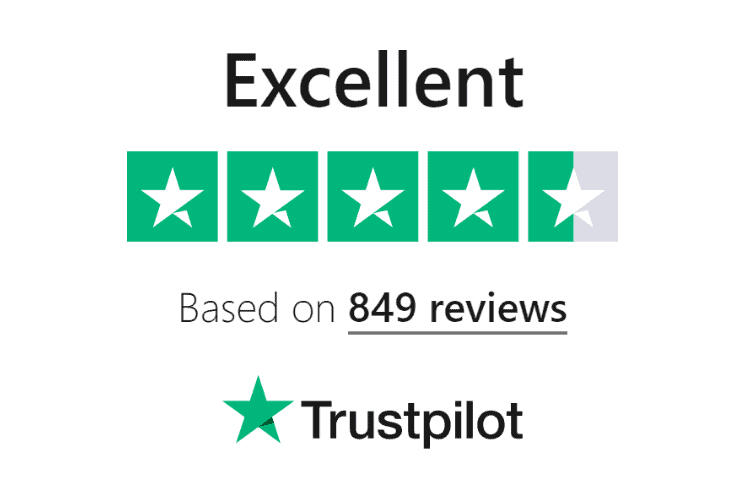
Understanding the UK Business Visitor Visa: What Activities Can You Pursue?
The Standard Visitor Visa (also known as the business visa) has specific constraints on business-related engagements during your stay in the UK. Being well-versed in the UK visitor regulations for business purposes is essential. At Immigration Advice Service, we recommend consulting the gov.uk website to determine if the UK business visitor visa aligns with your needs.Approved activities during a short-term stay on the UK business visa include:1. Attending business appointments like conferences, meetings, training, seminars, and interviews.
2. Conducting one-off or short series talks and speeches. However, paid work remains prohibited.
3. Negotiating and formalising business contracts or deals for yourself or an overseas employer.
4. Inspecting international goods and services on behalf of an overseas employer, company, or business.
5. Participating in trade fairs for promotional, non-profit purposes only.
6. Conducting research beneficial for overseas business endeavours, such as market or technological research.
7. Undertaking site visits and assessments for international projects or businesses.
8. Engaging with UK customers for briefing purposes, provided employment activities occur overseas.
9. Seeking funding for a UK business, although conducting business activities during the visit is restricted—requiring a tier 1 innovator visa.
10. Performing unpaid academic research or accompanying international students on a study abroad programme.
11. Sitting exams like PLAB or OSCE for professional purposes, although working during the visit is prohibited.While the business visitor visa permits specific activities, it's important to note the limitations and explore alternative visa options for certain business duties during your stay in the UK.
Limitations of a Business Visitor Visa: Activities Prohibited During Your Stay
The UK Business Visitor Visa, part of the standard UK visitor visa category, shares similar limitations. UK immigration laws demand precision in your visa application.Failure to provide adequate evidence of eligibility and travel intent risks rejection by the Home Office or refusal by immigration authorities upon arrival.Despite its apparent comprehensiveness, the UK business visitor visa imposes strict limitations on business activities during short-term stays.A diverse array of work and business visas cater to individuals from the United States, the Middle East, Asia, Africa, Australia, and other non-EEA regions. It's crucial to identify the suitable visa application.Prohibited actions with a business visitor visa include:1. Performing paid or unpaid work during your stay.
2. Long-term residence or work in the UK.
3. Receiving public funds.
Evidence of sufficient funds to support your stay is mandatory. Applying for business grants or bursaries, even for future UK business involvement, is restricted.Navigating visas for specific business duties in the UK can be challenging. Contact us for guidance.Discover More About the UK Business Visitor VisaThe list detailing permissible and prohibited business activities under the standard visitor visa (business visitor visa) can be complex. If uncertain about the suitable work or business visa, our adept immigration lawyers offer tailored advice and assistance.Contact us to explore how we can help. Our advice package provides invaluable guidance, complemented by a comprehensive application service. With a dedicated caseworker, we assist in compiling and fortifying your visa application with essential documents.
Get in touch with our team of UK immigration specialists to find out how we can help you and your family.
How Long Will The Visa Processing Time Take?
When planning a business trip to the UK, it's advisable to submit your business visitor visa application forms between three months and 48 hours before your intended travel. The earliest application window opens three months before travel, and earlier submissions are often recommended for a smoother process.For visa nationals applying from countries like India, Pakistan, the United States, the United Arab Emirates, and other non-EEA nations, the visa decision typically takes around three weeks. We have a comprehensive guide available to track your visa status during processing.In cases of urgency, visa processing time can be expedited. For urgent appointments like business interviews or conferences, priority services are available:1. Priority Service: Collect your decision within five working days of applying, although availability varies by country.2. Super Priority Service: Receive a decision within 24 hours of applying, with an additional cost. This premium service is ideal for urgent visa needs, but its availability should be confirmed locally.If assembling your business visitor visa application is challenging and you have a pressing business appointment in the UK, our qualified lawyers at the Immigration Advice Service offer assistance.We understand the process can be overwhelming. That's why we provide a Fast Track Application Service. We assist in compiling a comprehensive application, validate supporting documents, book a Home Office Same-Day Premium slot, and create a supportive Letter of Representation. Contact us to learn more.
Essential Documentation for a Successful Visa Application: What Do I Need?
To qualify for the UK business visitor visa, meeting several general UK business visa requirements is crucial:1. Demonstrating a clear intention to depart the UK at the end of your visit.
2. Providing evidence of all planned business activities during your UK stay.
3. Showing sufficient funds to cover your expenses and accommodation for both yourself and any dependants, without relying on public funds.
4. Proving financial capability for your travel to and from the UK.For a successful visa application, presenting a comprehensive set of supporting documents is essential to validate your eligibility and purpose of travel.Primarily, you must provide details of your current passport or valid travel identification. It's imperative to have the right travel authorisation for the UK. Additionally, any non-English or non-Welsh documentation requires certified translations.You might also be required to furnish:1. Travel documents specifying your planned UK visit dates.
2. Your immigration history for the past ten years.
3. Details of your association with an overseas employer or company.
4. Estimated visit expenses and evidence of adequate financial means to support your trip.
5. UK residence particulars for your visit.
6. Contact information for your current residence abroad.
7. Parents' names and dates of birth, as well as your partner's contact details and passport number, if applicable.
8. Disclosure of any past criminal or immigration offences.Collating a robust set of supporting documents that highlight your case's strengths is pivotal for a successful visa application. If you require clarity or guidance, feel free to contact our team. Our qualified lawyers specialise in immigration law and are best positioned to provide the assistance and direction you need.
How To Apply For UK Business Visitor Visa
Before proceeding with your application, it's crucial to confirm your eligibility for a UK Business Visitor Visa, designed for short business-related trips to the UK. Eligible individuals should access the official UK government website dedicated to visa applications and create an account to initiate the process. Complete the requisite online visa application form.Assemble the necessary documents, which may encompass:1. A valid passport or travel document.
2. Evidence detailing your planned business activities in the UK, such as invitation letters from UK companies, specifics of business meetings, or conference registrations.
3. Documentation demonstrating your financial capability to sustain yourself during your UK stay, which may include bank statements or sponsorship letters.
4. Accommodation arrangements for your UK visit.
5. A recent passport-sized photograph adhering to the UK visa photo criteria.
6. Detailed travel itinerary, encompassing flight information.
7. Any other documents pertinent to your visit's purpose.Depending on your nationality and application location, you might need to provide biometric information (fingerprints and a photograph) at a local visa application centre. Verify if this requirement applies to you. Subsequently, settle the visa application fee, varying based on visa type and location. Payment is typically made online as part of the application process.Certain applicants might be required to attend an interview at the local visa application centre. Instructions regarding the interview schedule and location will be provided, if necessary. Following this, submit your application and accompanying documents either online or at the visa application centre.Upon approval, a vignette will be affixed to your passport, granting entry to the UK. Carefully review the terms and conditions of your visa. Once approved, you can engage in your planned business activities within the visa's validity period in the UK.
UK Business Visit Visa Application Fees
1. Short-term (up to 6 months) Visa:
£115.2. Longer-term (up to 2 years), Multiple-Entry Visa:
£400.3. Longer-term (up to 5 years), Multiple-Entry Visa:
£771.4. Longer-term (up to 10 years), Multiple-Entry Visa:
£963.
Frequently Asked Questions
Child Visitor Visa
Get in touch with our immigration experts to learn more about the UK Child Visitor Visa.Call us on 020 7183 1734 for immediate help & assistance with your situation. We’re here to help you in person, via the phone or online.
Request a call back from our immigration experts
Child Visitor Visa
A Child Visitor Visa enables individuals under 18 to travel to the UK for family visits or educational purposes within the Standard Visitor Visa category, with a validity of up to six months.When applying in this category, it's crucial to demonstrate suitable accommodation and care arrangements during the stay. Additionally, proof of a responsible parent or guardian in the home country is required.Our team of highly qualified lawyers specializes in facilitating Child Visitor Visa applications. Collaborating closely with you, our lawyers assess your eligibility, ensuring your application meets the highest standards. We conduct a thorough document check and create a comprehensive Letter of Representation, emphasizing the strengths of your case, referencing supporting documentation, and citing relevant UK immigration laws in support of your application.
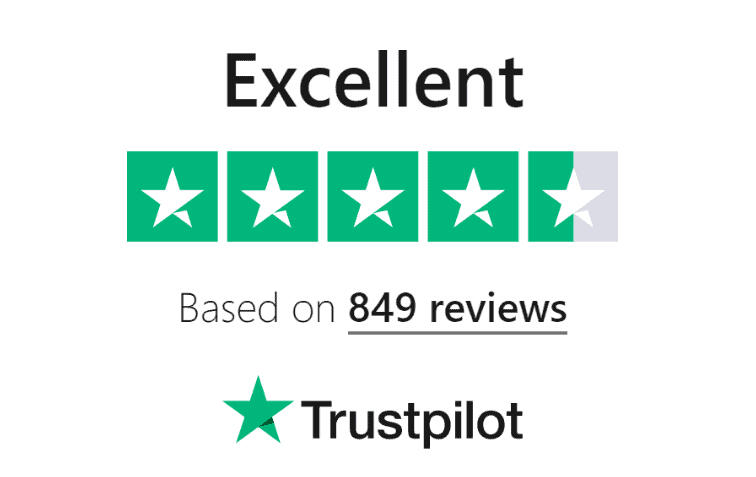
Frequently Asked Questions
Student Visitor Visa
This visa category is designed for non-British and non-Irish international students who want to take up a short-term course in the UK.Call us on 020 7183 1734 for immediate help & assistance with your situation. We’re here to help you in person, via the phone or online.
Request a call back from our immigration experts
What can you do on the Student Visitor Visa?
As of December 1, 2020, Student Visitor Visa holders are exclusively allowed to enroll in English language courses lasting between six and eleven months.For courses lasting up to six months, non-visa nationals may explore the possibility of entering the UK under the Standard Visitor Visa.Commonly referred to as the Short-term Study Visa, the Student Visitor Visa is distinct from the Student Visa, representing a separate visa category.For citizens of EU or EEA countries or those covered by the EU Settlement Scheme, the permissible activities on the Student Visitor Visa may vary based on their arrival date in the UK.Participation in an approved course meeting eligibility criteria is the sole allowable study activity.Visa holders can remain in the UK for the course duration plus an additional 30 days, provided they can verify that the course spans less than eleven months.In addition to the visa application fee and course expenses, applicants may encounter additional fees, such as the healthcare surcharge.
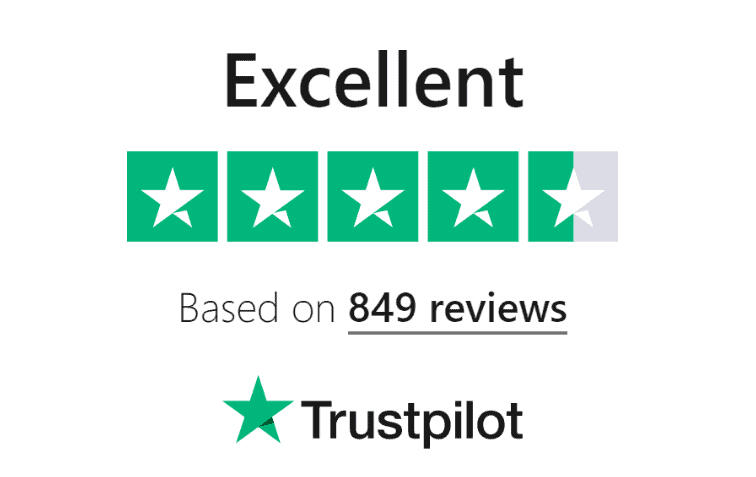
Who can apply for this visa?
To initiate the application for the short-term student visa, ensure compliance with the following prerequisites:1. Age Requirement: Applicants must be over 16 years old.
2. Course Acceptance: Acceptance into an eligible English language course is mandatory.
3. Exclusive English Course: The chosen course must focus solely on English language study.
4. Accreditation: The institute or course provider should be accredited and registered.
5. Financial Capability: Applicants must demonstrate sufficient funds to support themselves without seeking employment.
6. Return Journey Coverage: Adequate financial means to cover the expenses of the return journey are necessary.For applicants under 18 years old, additional considerations include:1. Accommodation and Travel Arrangements: Submission of proof regarding secured accommodation and finalised travel arrangements.
2. Parental Consent: Confirmation of parental or guardians' consent for the applicant's study in the UK.Successful visa issuance requires a clear demonstration of the intent to study exclusively in the approved course. Compliance with departure regulations is crucial, mandating exit from the UK within 30 days after course completion. Failure to adhere to this rule may result in violating immigration regulations, potentially impacting future applications.Moreover, visa holders are restricted from engaging in work, work placements, or any form of work experience. Business and professional activities are also strictly prohibited for the entire visa duration.
What are the course requirements?
To pursue studies in the UK under this visa, your course provider must be accredited as either a UK institution or an eligible overseas course provider (for international courses within the UK).It is your responsibility to confirm that your course provider qualifies as an eligible accredited institution.Your accredited institution must possess a valid student sponsor licence or accreditation and should be listed by one of the following bodies:1. Accreditation Service for International Colleges
2. Accreditation UK
3. British Accreditation Council
4. Education and Training Inspectorate (Northern Ireland)
5. Estyn (Wales)
6. Education Scotland (Scotland)
7. Independent Schools Inspectorate
8. Office for Standards in Education (Ofsted)
9. Office for Students
10. Quality Assurance Agency for Higher EducationIf your course is with an overseas institution, it must adhere to the following criteria:1. National accreditation for the course
2. Less than half of its programmes are UK-based
3. Offers programmes equivalent to UK degreesTo meet Home Office criteria for visa approval, your chosen course must satisfy the following conditions:1. Non-qualification outcome
2. Non-requirement for academic qualifications
3. No specified English language skills level
4. No minimum study hours requirement for the courseNote that in addition to Home Office regulations, your course provider may impose specific criteria for acceptance onto a course.
How to apply
To apply for this visa, you must apply outside the UK (you cannot switch to this visa) and receive a positive decision before travelling to the UK.Follow these steps to apply for your visa:1. Apply to an eligible course and receive an offer inviting you to study
2. Complete the online application form
3. Pay the application fee
4. Submit your supporting documents
5. Provide your biometric information (fingerprints and photograph)
6. Submit your application
7. Wait for a decision to be issued
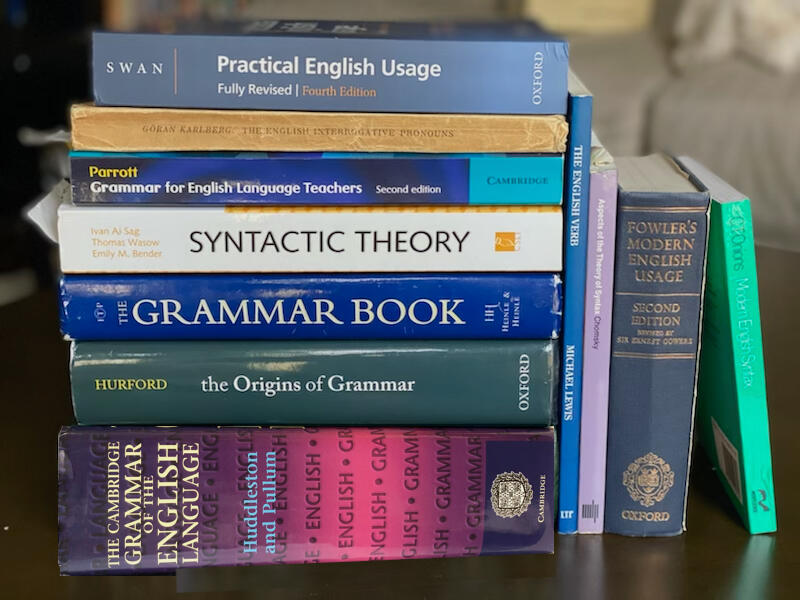
What documents do you need?
As with all visa applications, you will be required to submit supporting documents with your application to provide proof of your eligibility.Student Visitor Visa checklist-Fully completed online application form for a short-term student
-Receipt confirming payment of fees and healthcare surcharge
-Valid passport or travel document
-Letter confirming your acceptance to an accredited organisation, stating your details and the length and nature of the course
-Proof of sufficient funds to maintain yourself in the UK without recourse to public funds and without working
(e.g., bank statements, proof of financial sponsorship, etc.)
-Proof of payment of your course fees
-Your proposed itinerary and where you intend to stay
-Medical certificates (e.g., proof of COVID vaccination status, clean TB certificate, etc.)
-Certified translations of any document not in English or Welsh
-Biometrics (facial photograph and fingerprints)If you are aged under 18 years, you must submit evidence of travel, reception, and care arrangements when you enter the UK.It may be recommended to take out private medical insurance if you have specialist medical needs.You must also submit legal written confirmation from both parents or guardians (as well as their contact details) confirming their consent to allow you to come study in the UK.
Why was my Student Visitor Visa refused?
Common reasons for the refusal of a Student Visitor Visa often include:1. The course is not listed among approved providers.
2. The course duration exceeds eleven months.
3. The course leads to a recognised qualification.
4. Non-payment of the healthcare surcharge for the National Health Service (NHS).
5. Inadequate maintenance funds provided by the applicant.
6. Intent to work in the UK.
7. Lack of funds for the return trip.
8. Intent to pursue a different course than the one applied for.
9. Reliance on public funds for support.
10. Incomplete or error-ridden application forms.
11. Intention to spend an extended period in the UK.
12. Plans for frequent or successive visits to the UK.
13. Ineligibility for a visa based on grounds for refusal to the UK.As of October 6, 2021, the option for an administrative review is available in the event of a Student Visitor Visa application refusal.To pursue an administrative review, you must initiate the process within 28 days of receiving the refusal letter. A positive outcome in the review eliminates the recording of a refusal on your immigration record. However, it must be declared in any future applications.Alternatively, you may choose to re-submit your application, acknowledging an unchallenged refusal that you must declare.
Can you extend the visa?
It is not permitted to switch to another immigration category if you are granted a Student Visitor Visa.Similarly, it is not possible to switch into this category if you are in the UK on another visa.Another requirement of the Student Visitor Visa is that the UK is not your primary home.You may be able to return to your home country and apply for a Student Visa is you wish to continue studying in the UK.
How much does the Student Visitor Visa UK cost?
The Student Visitor Visa application costs are outlined in the table below:Application fee £200
Healthcare surcharge £470
Average cost of studying English including course fees and maintenance cost (weekly) £490
Cost of administrative review application after refusal £80
Approximate total £1,240Depending on where your course is, or the type of course, your exact costs may be higher.The application fee is more expensive than a Standard Visitor Visa lasting six months (which costs £100).
Frequently Asked Questions
Frequently Asked Questions
Student Visitor Visa
If you are a foreign national and you wish to spend some time in the UK as a tourist or to visit your family and your friends, you can apply for a Visitor Visa.Call us on 020 7183 1734 for immediate help & assistance with your situation. We’re here to help you in person, via the phone or online.
Request a call back from our immigration experts
N
F
F
F
F
FFfF
F
F
F
N
F
F
F
F
FFfF
F
F
F
N
F
F
F
F
FFfF
F
F
F
N
F
F
F
F
FFfF
F
F
F
N
F
F
F
F
FFfF
F
F
F
N
F
F
F
F
FFfF
F
F
F
N
F
F
F
F
FFfF
F
F
F
N
F
F
F
F
FFfF
F
F
F
N
F
F
F
F
FFfF
F
F
F
N
F
F
F
F
FFfF
F
F
F
N
F
F
F
F
FFfF
F
F
F
N
F
F
F
F
FFfF
F
F
F
N
F
F
F
F
FFfF
F
F
F
N
F
F
F
F
FFfF
F
F
F
👇🏻 Click “Get Access” To Receive FREE Access to Visa & Immigration latest updates
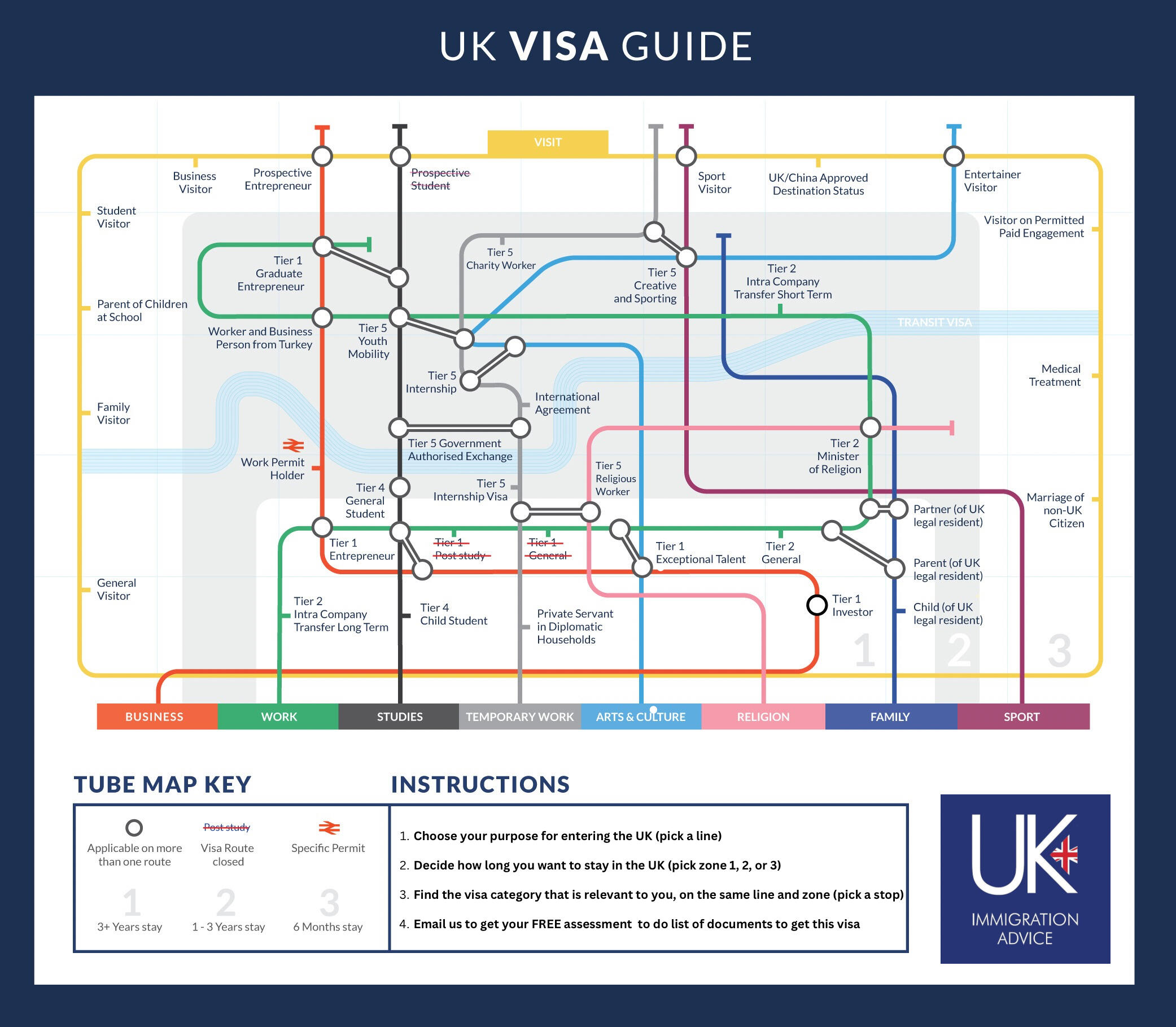
What We Do
Lorem ipsum dolor sit amet, consectetur adipiscing magna elit. Magna sed at scelerisque enim, mattis iaculis nisl. Duis amet aliquam ipsum, tristique lacus. Quisque sed tempus. Lorem ipsum dolor sit amet, consectetur adipiscing magna elit. Tempus sed scelerisque enim, mattis iaculis nisl. Duis amet aliquam ipsum tristique lacus. Quisque sed tempus.
The Team
Lorem ipsum dolor sit amet, consectetur adipiscing magna elit. Vestibulum at scelerisque enim, mattis iaculis nisl. Duis id aliquam ipsum, et tristique lacus. Quisque sed tempus.
